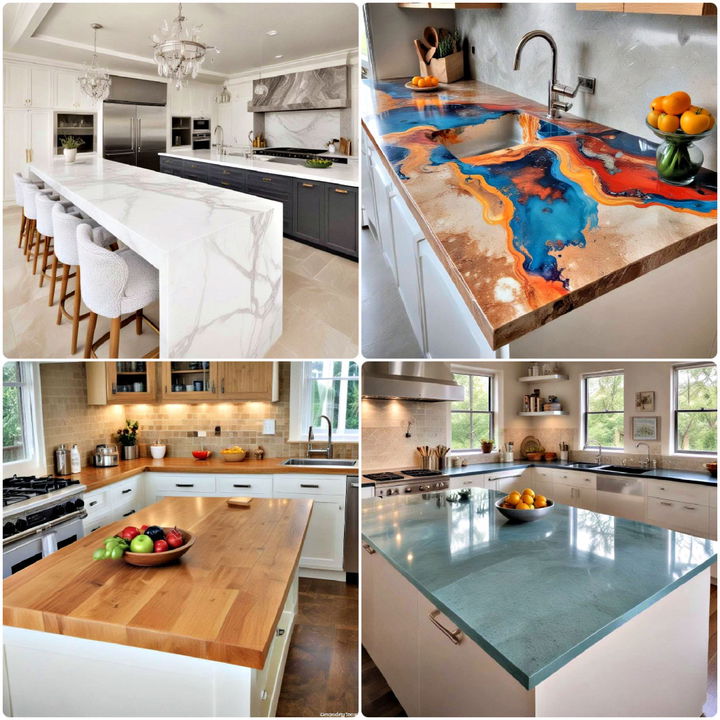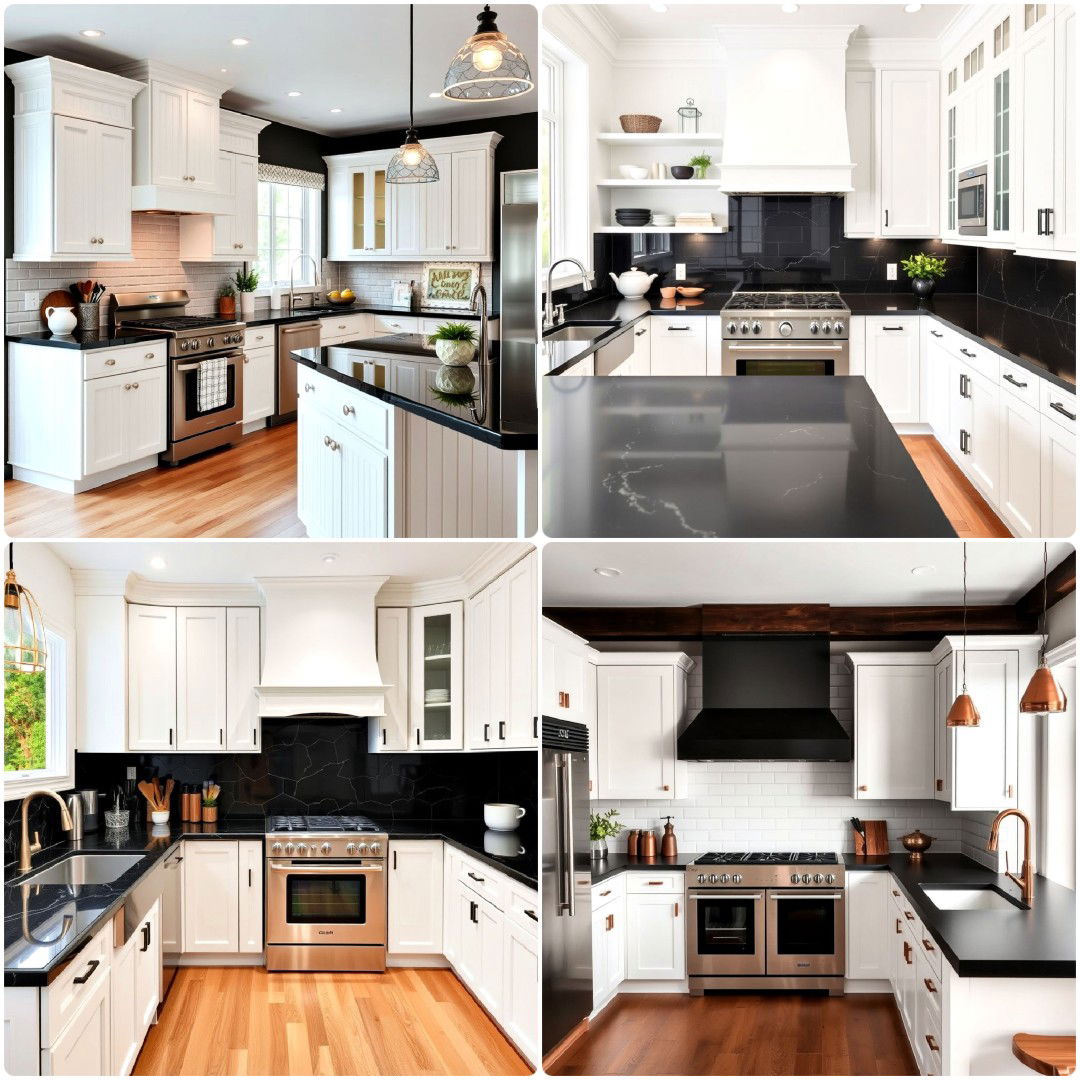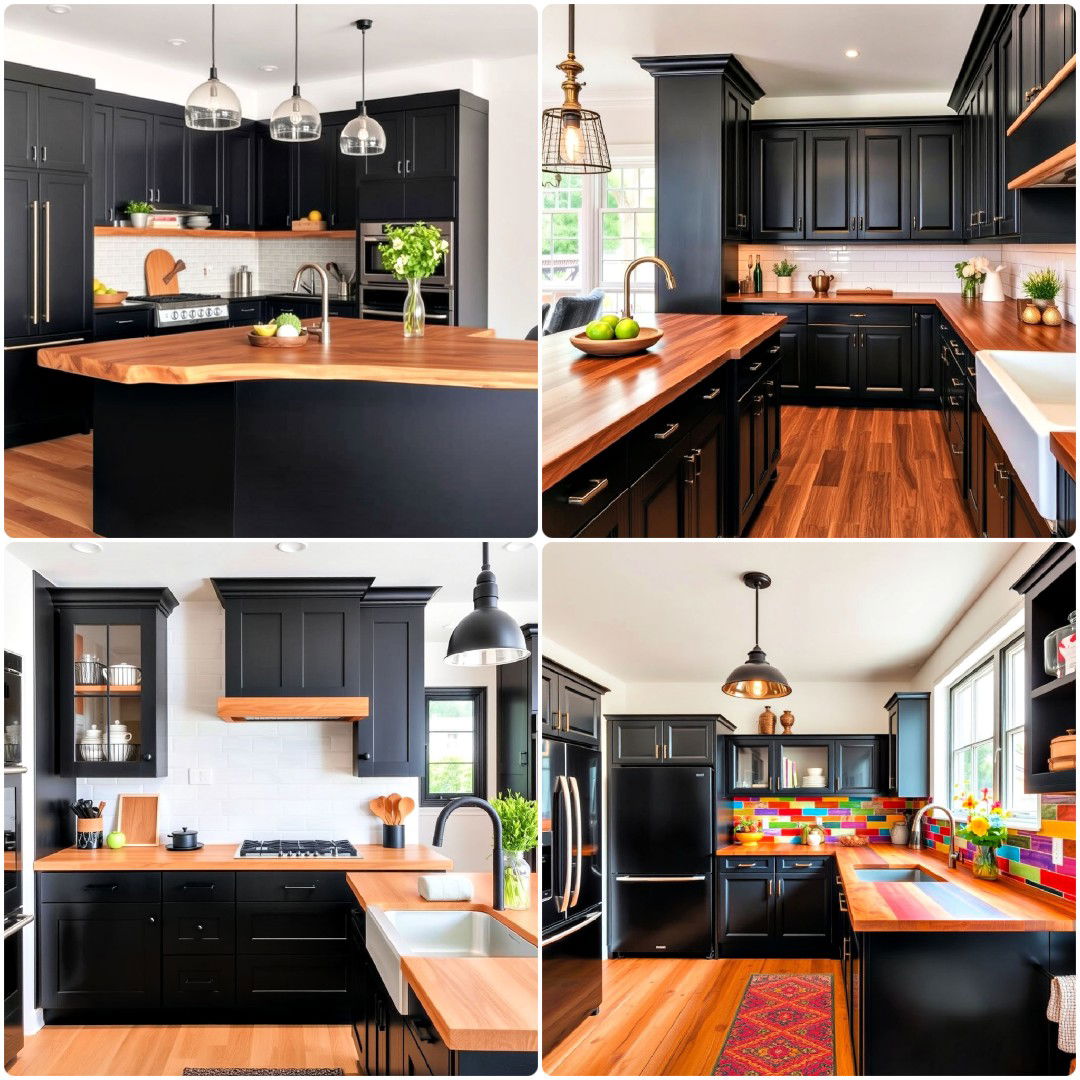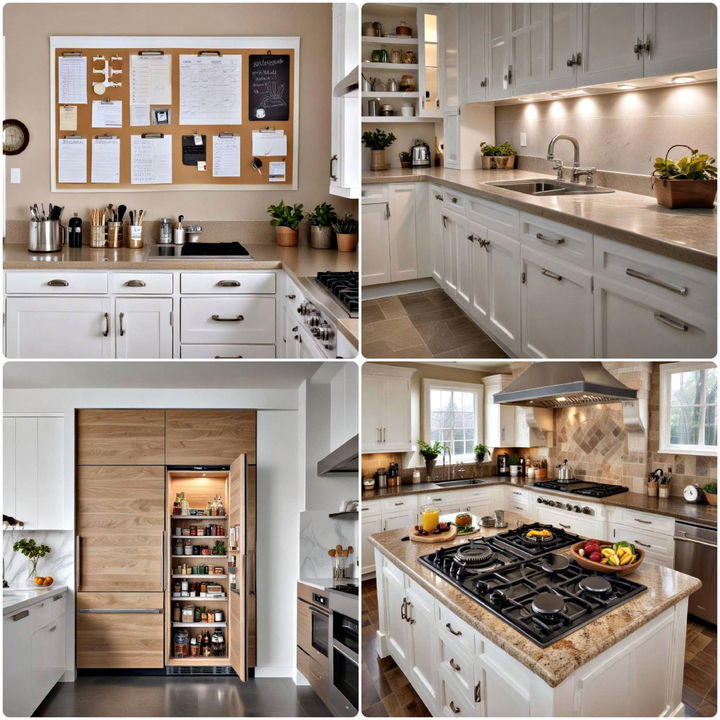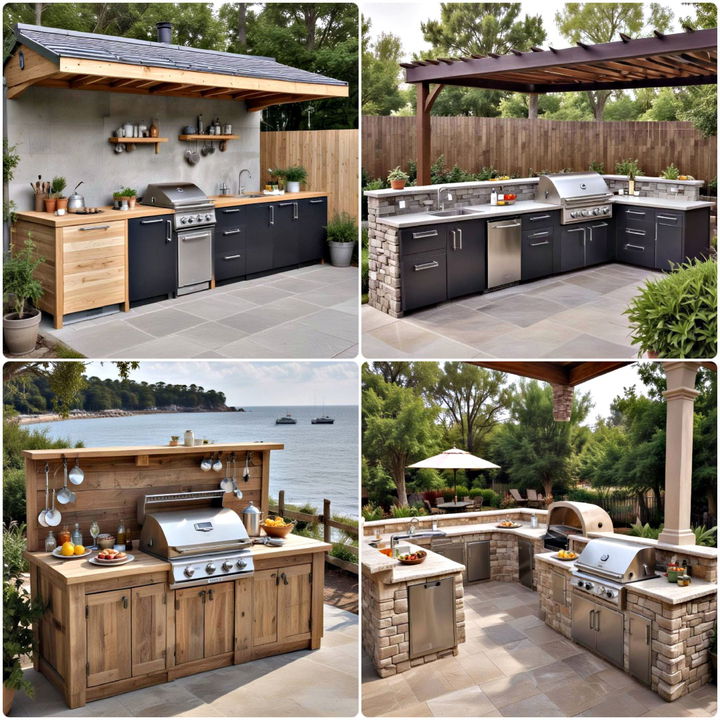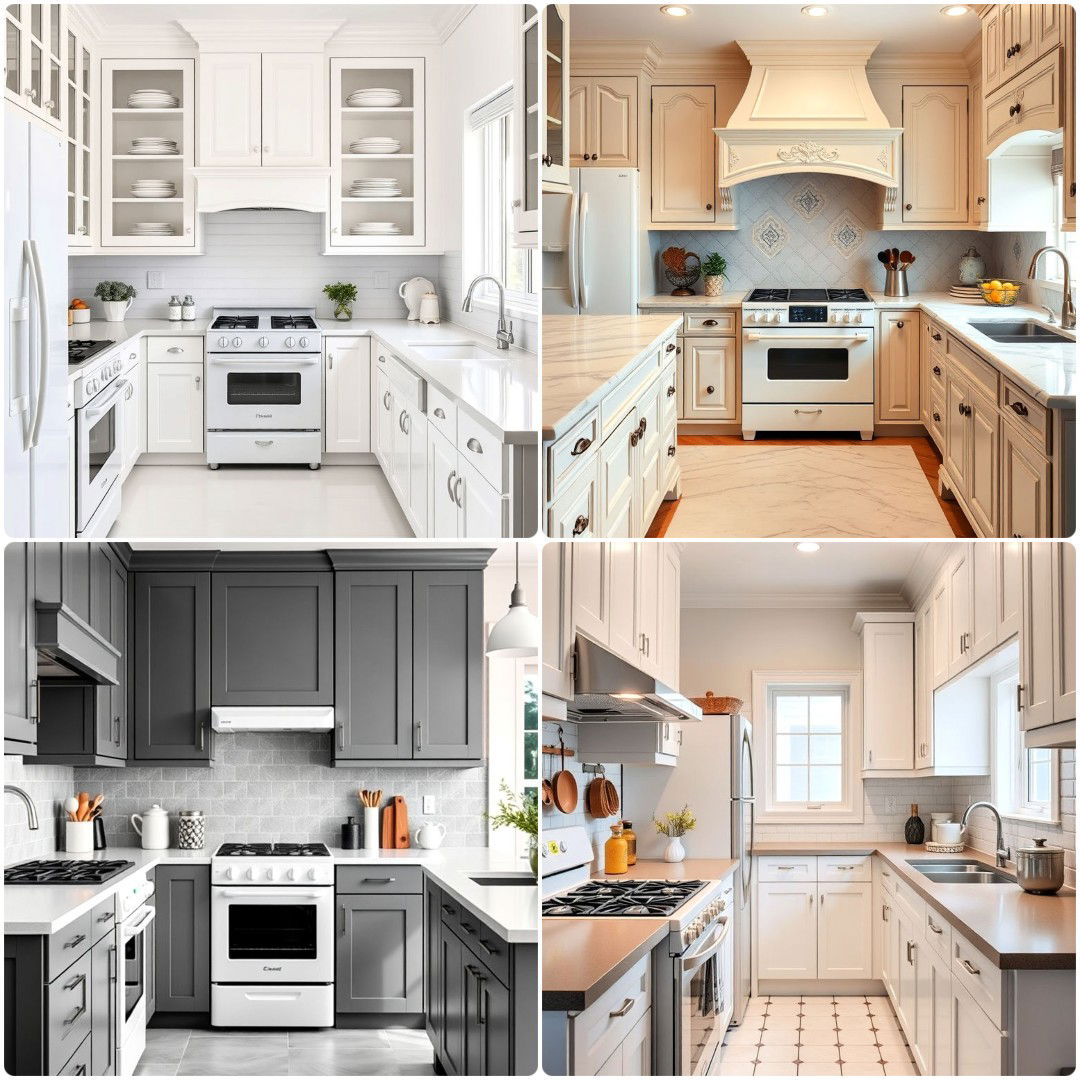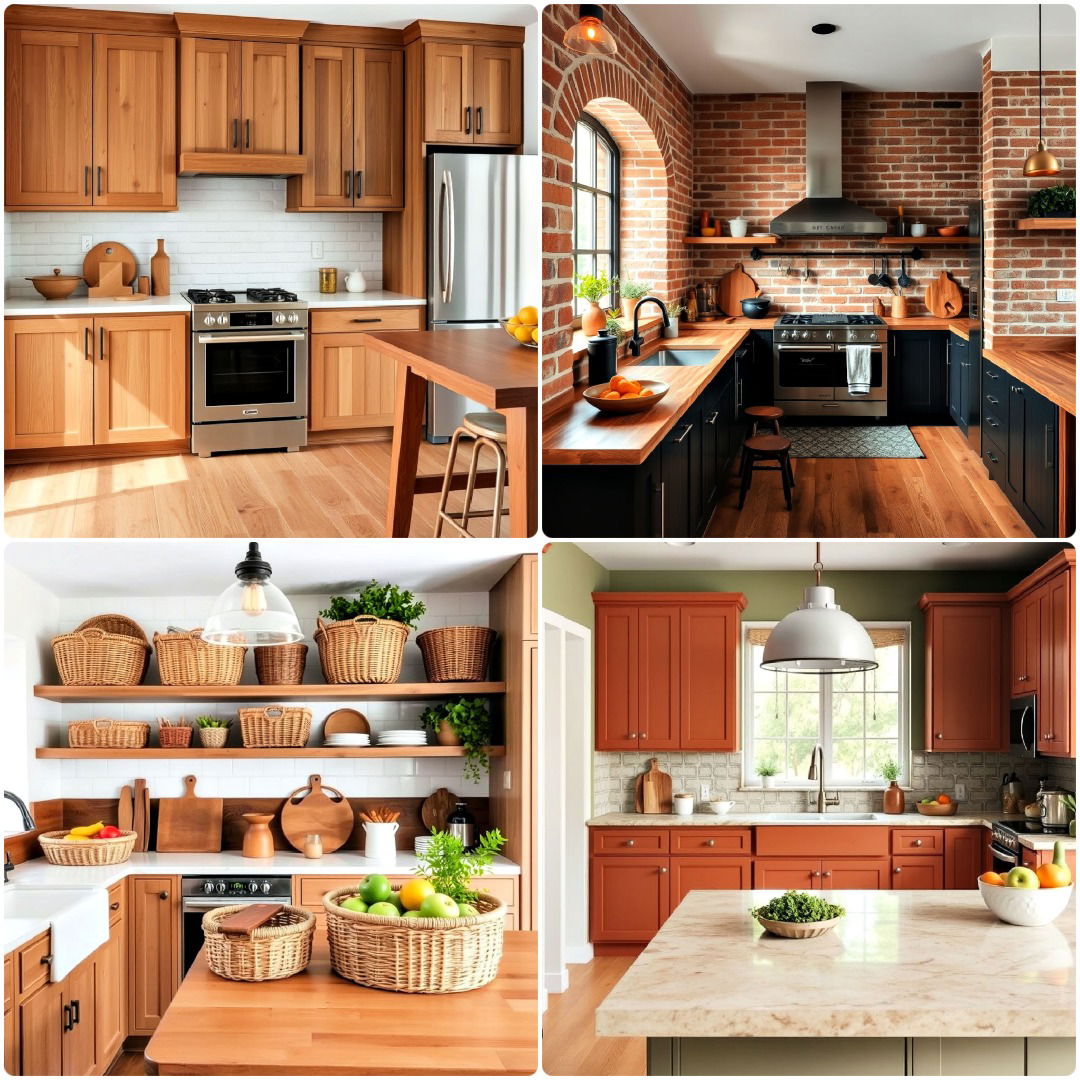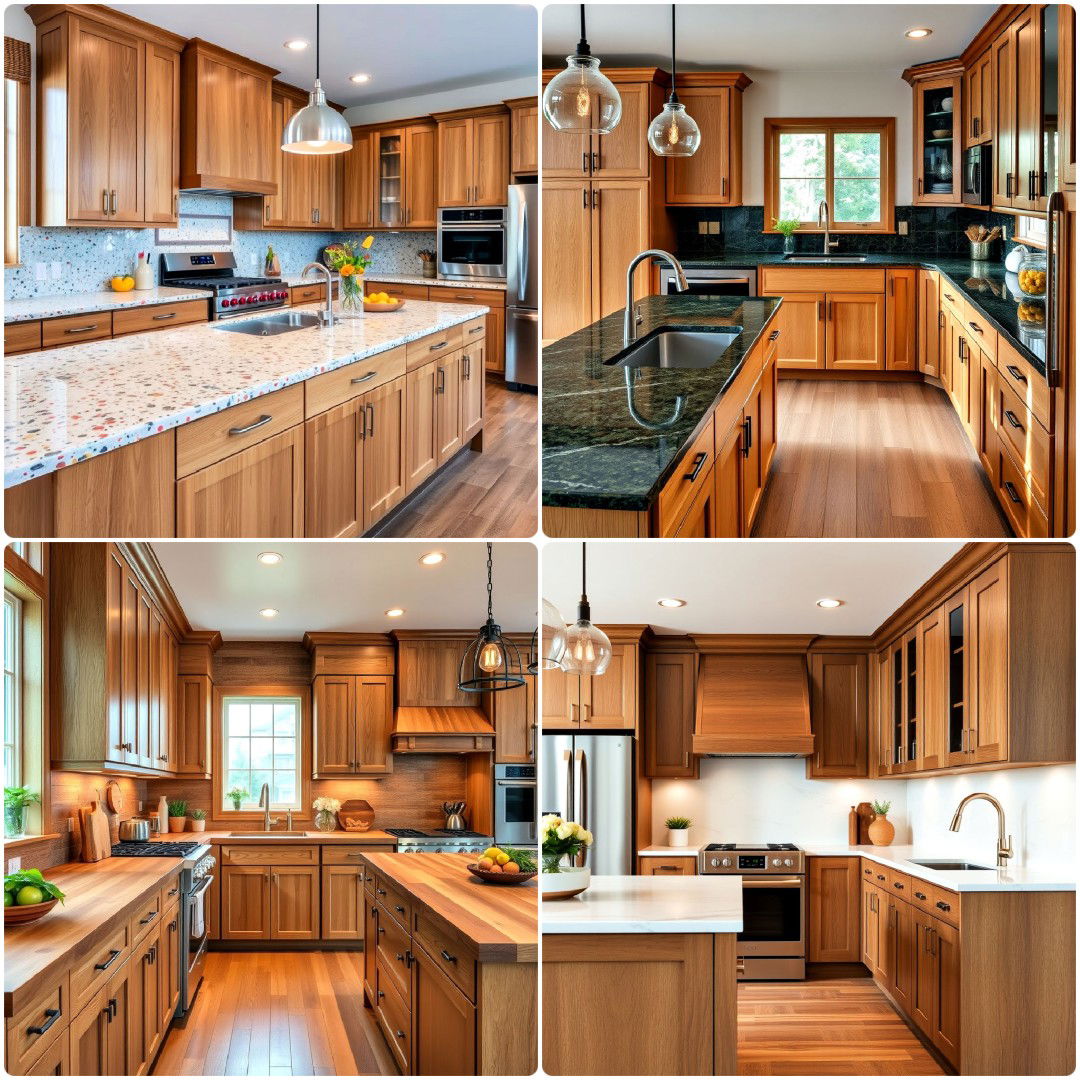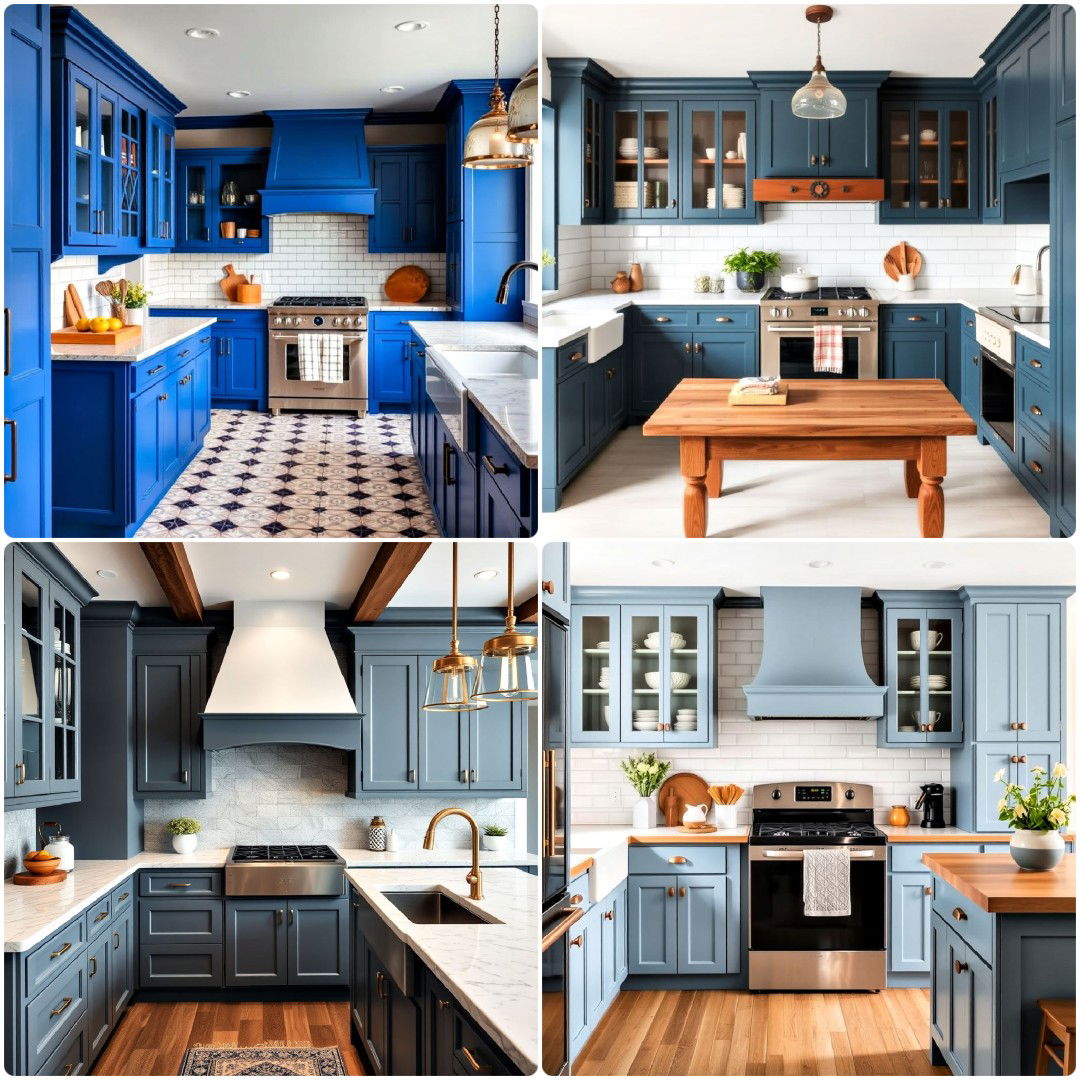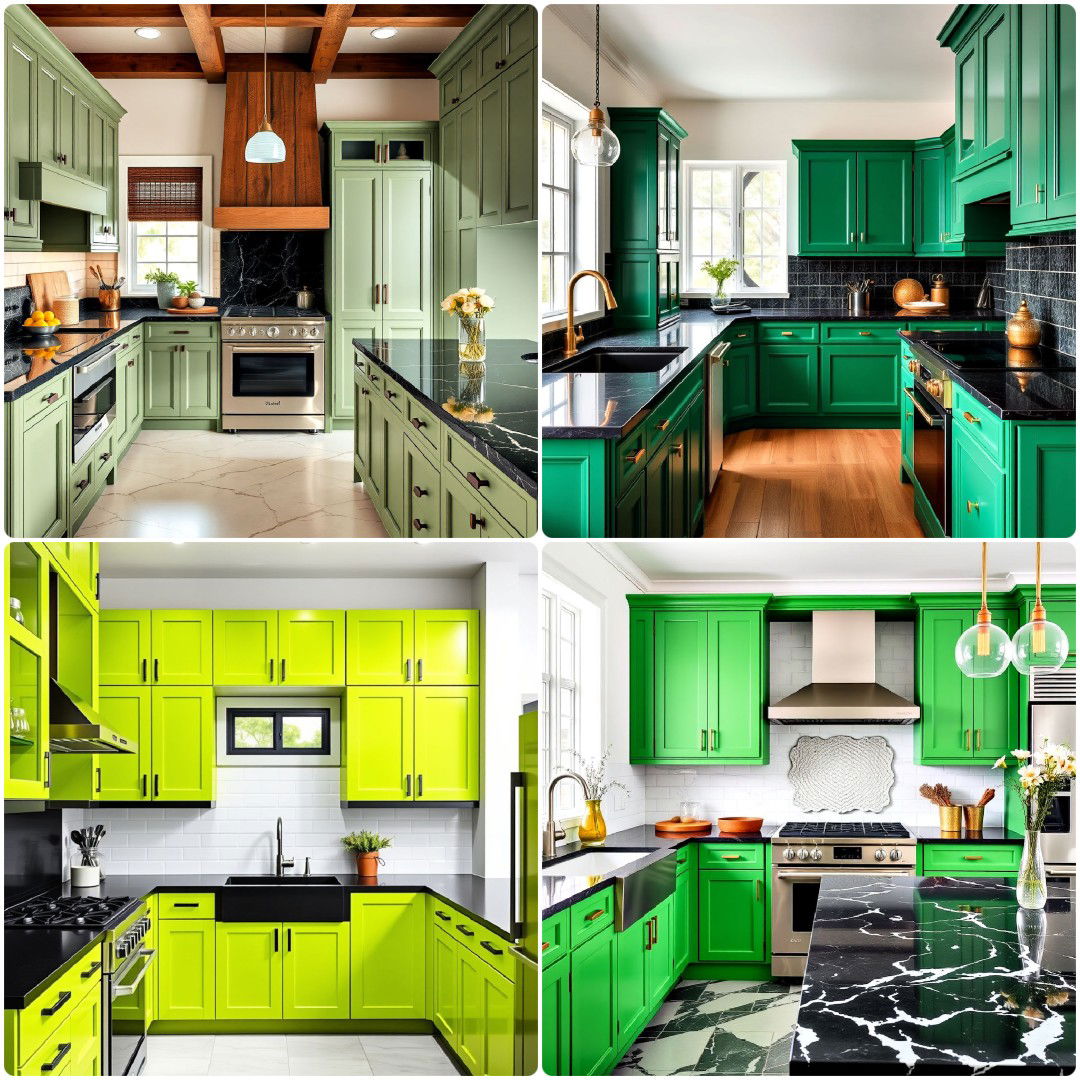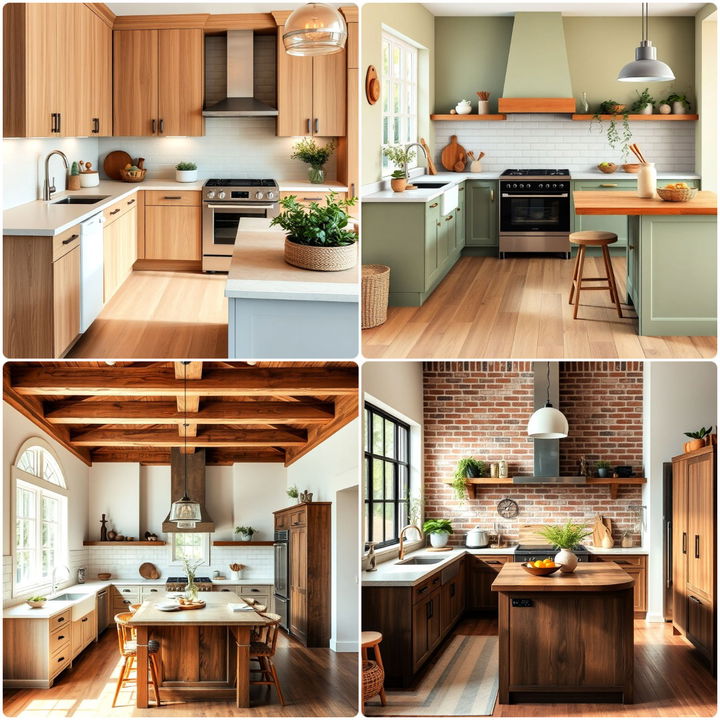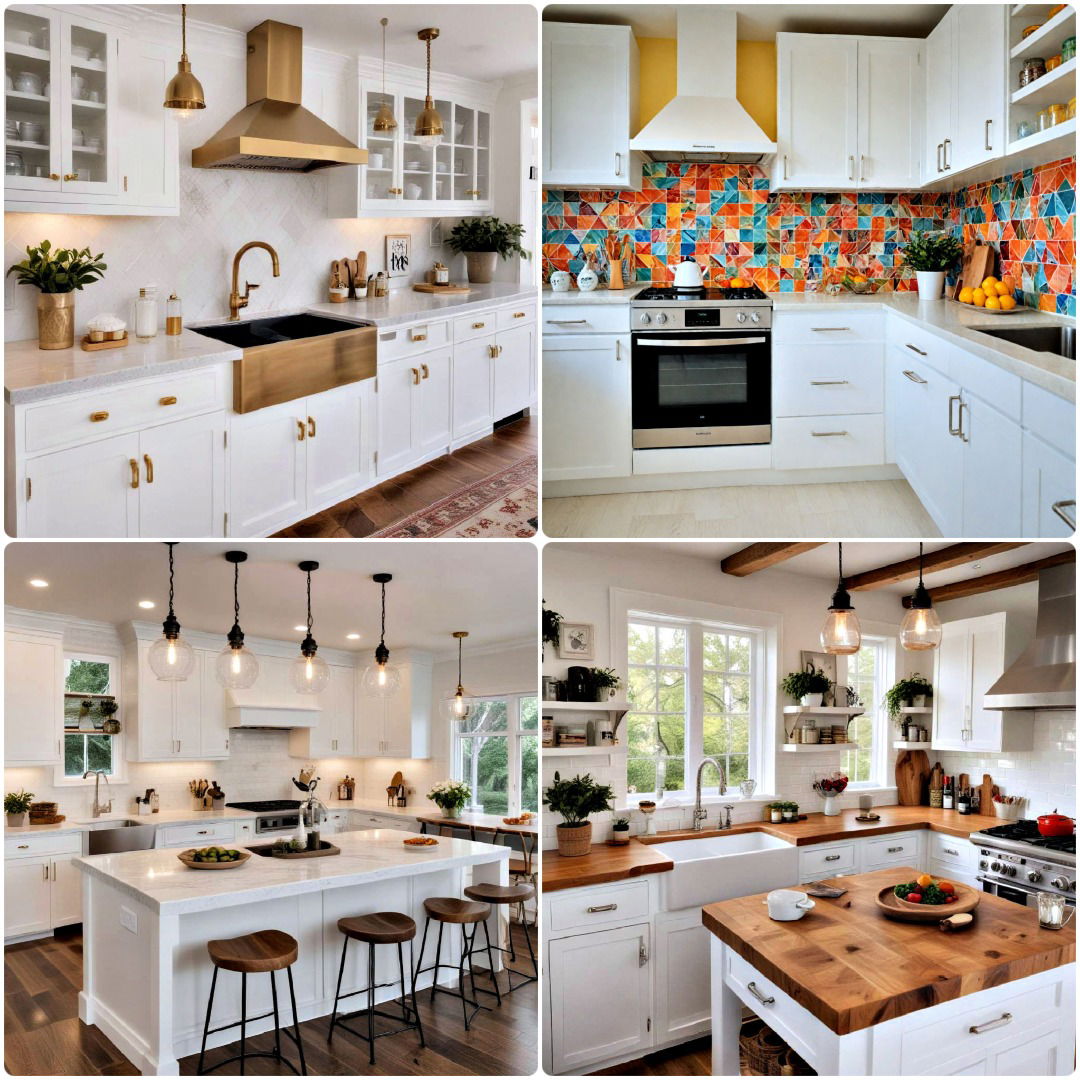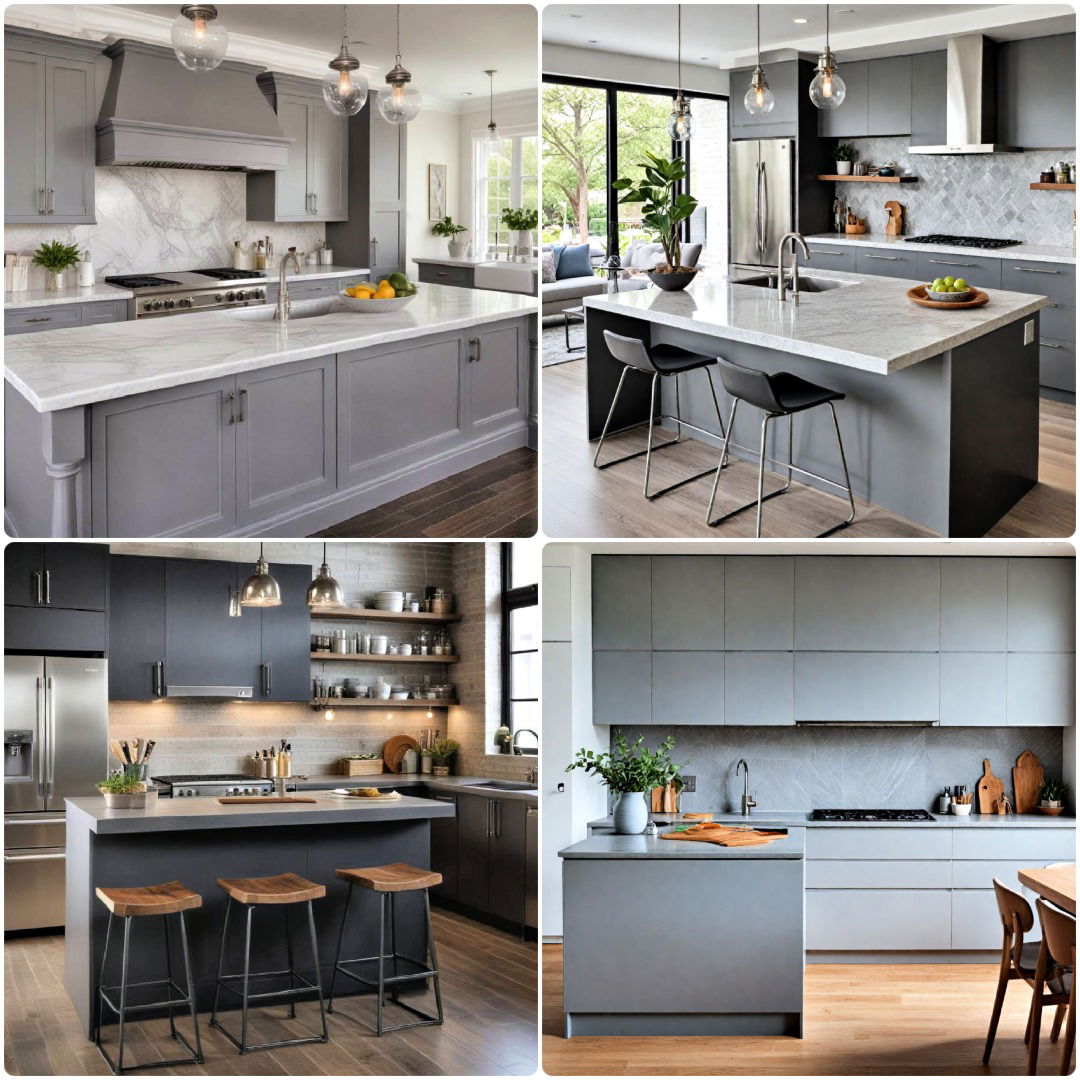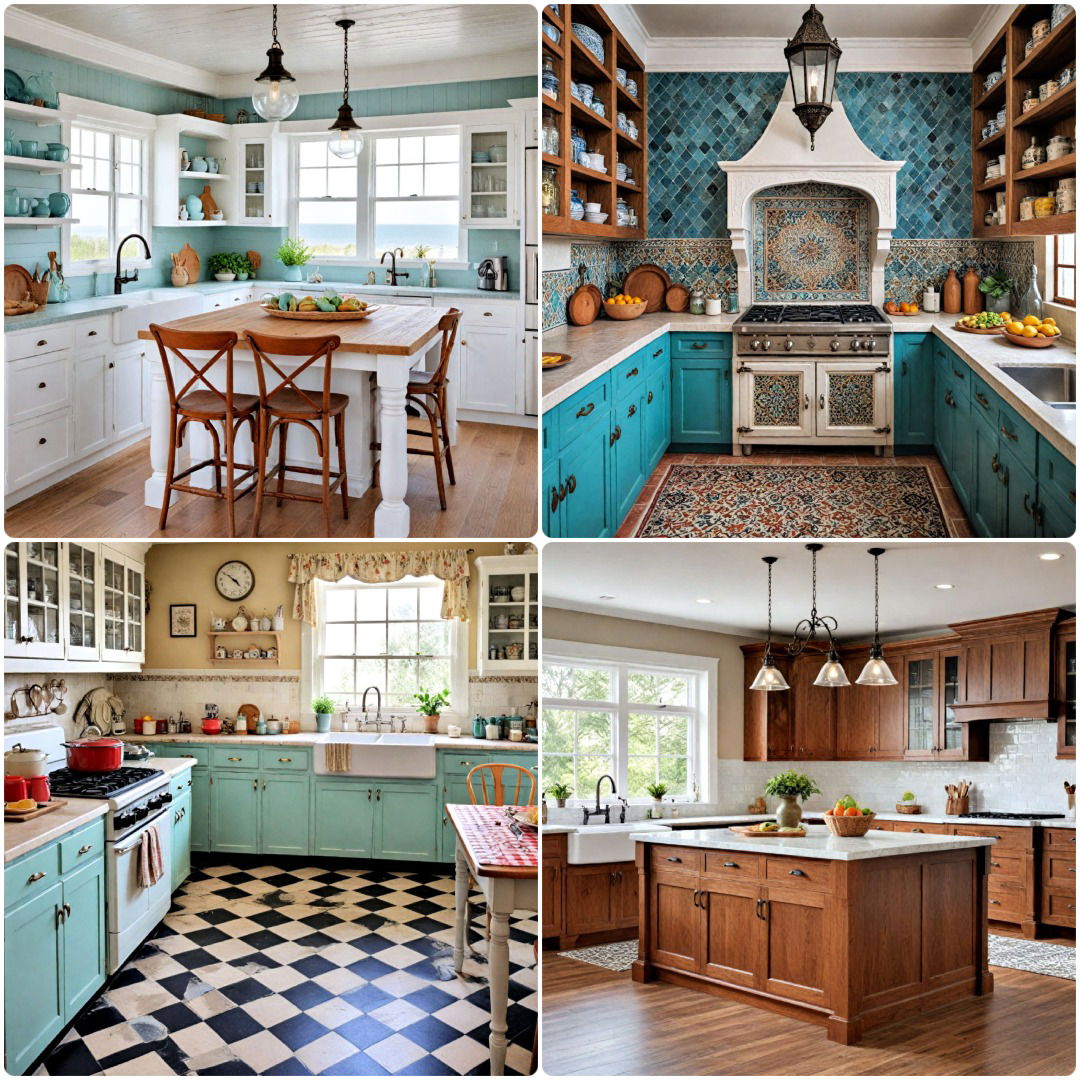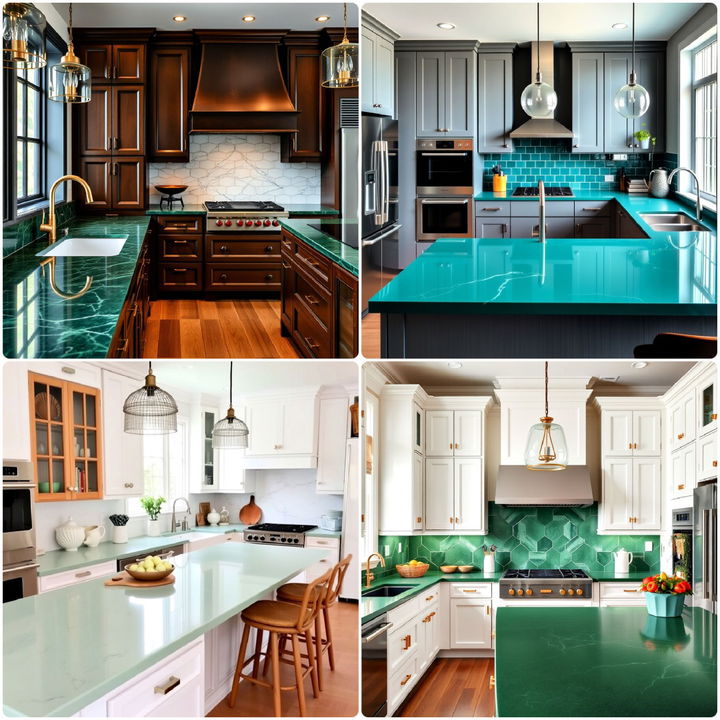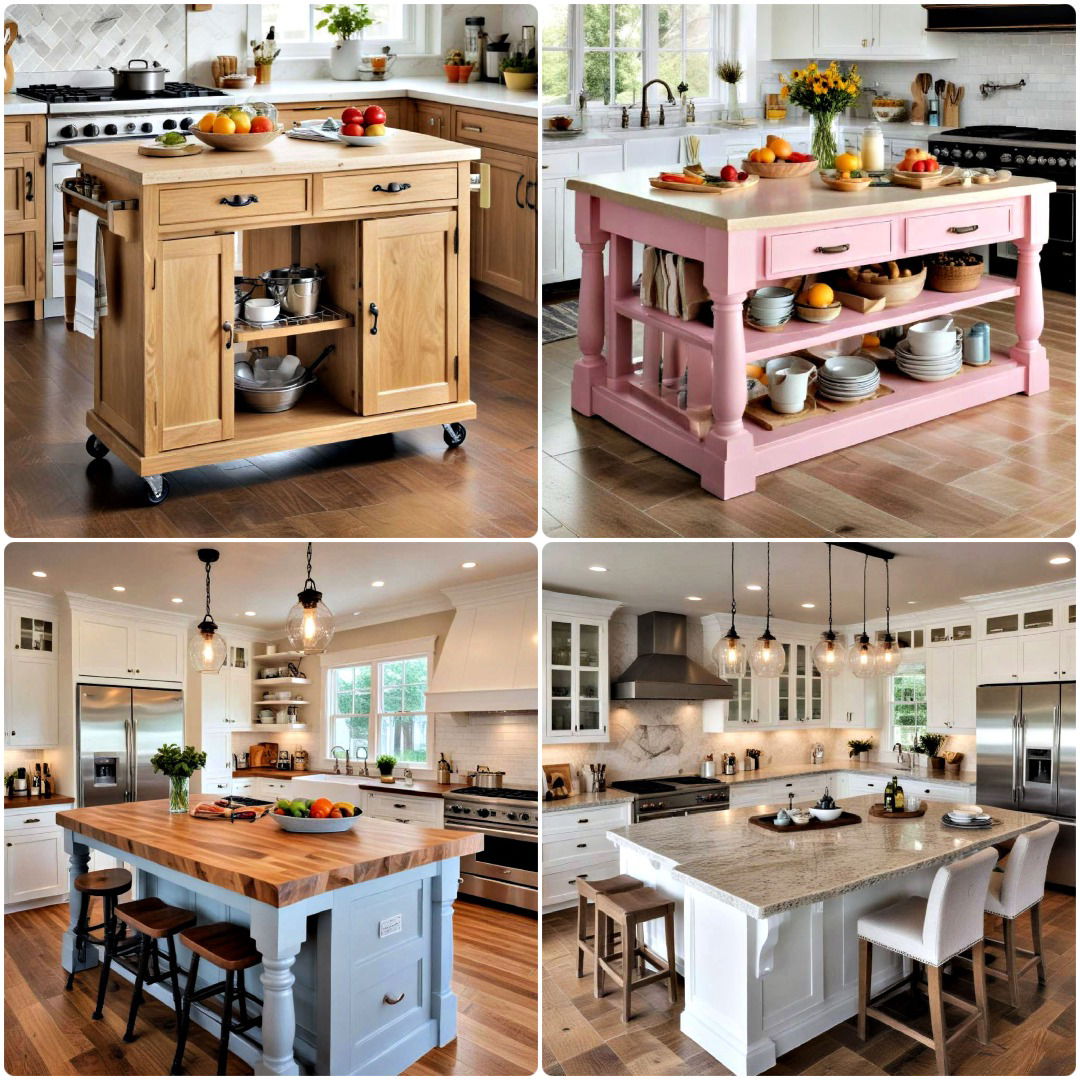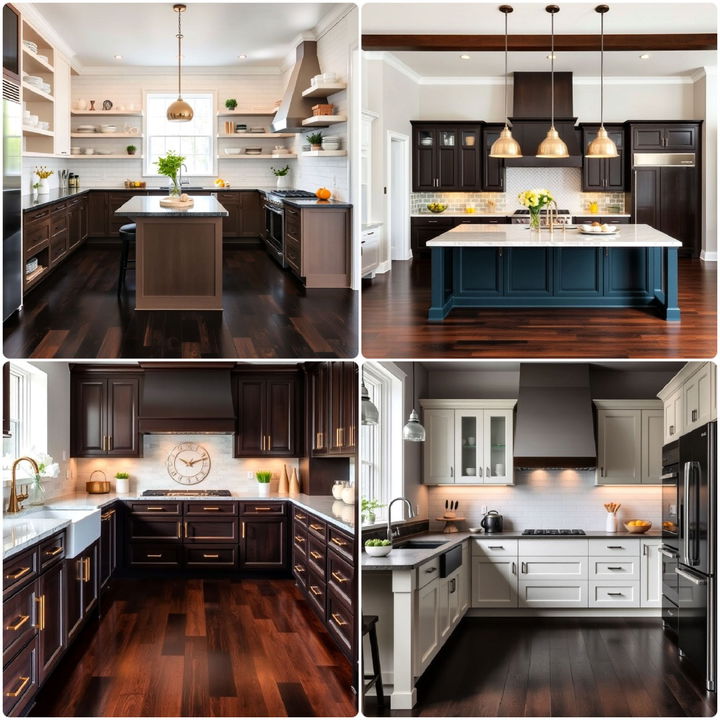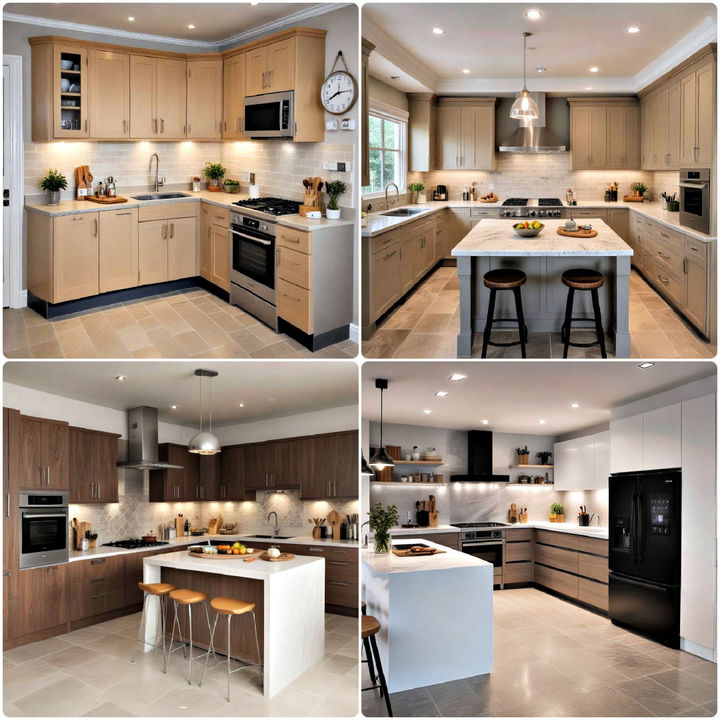Blend natural beauty with sleek sophistication through these 20 dreamy organic modern kitchen ideas that redefine contemporary comfort. Organic kitchen aesthetics are more than a trend—they’re a way of creating spaces that nourish the soul as much as they do the body. From the warm embrace of reclaimed wood to the earthy charm of terracotta, every element reflects a thoughtful commitment to sustainability and timeless beauty. Whether you’re a culinary enthusiast or simply love the idea of an eco-friendly home, these ideas will inspire a space that’s as functional as it is refreshing.
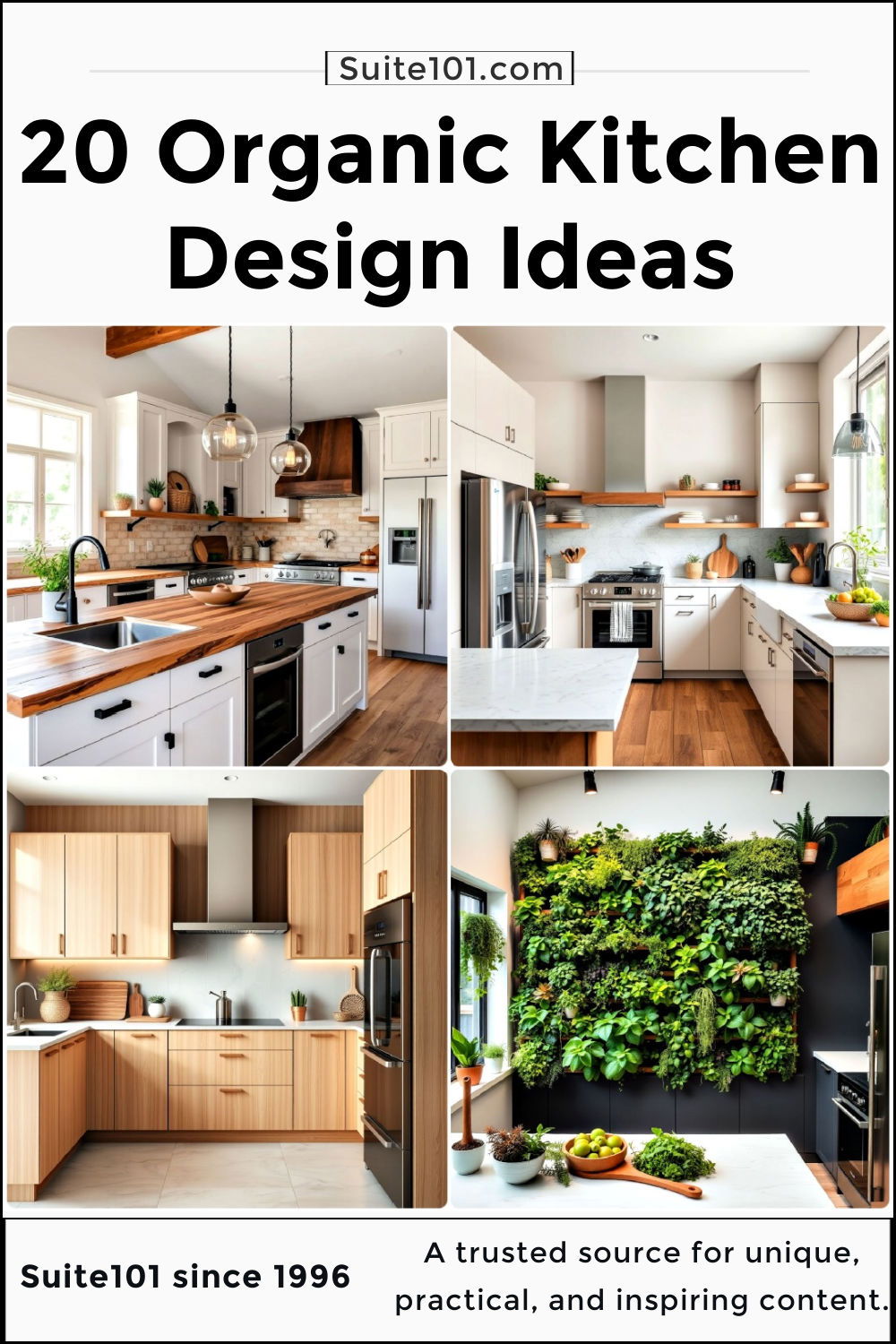
1. Reclaimed Wood Countertops
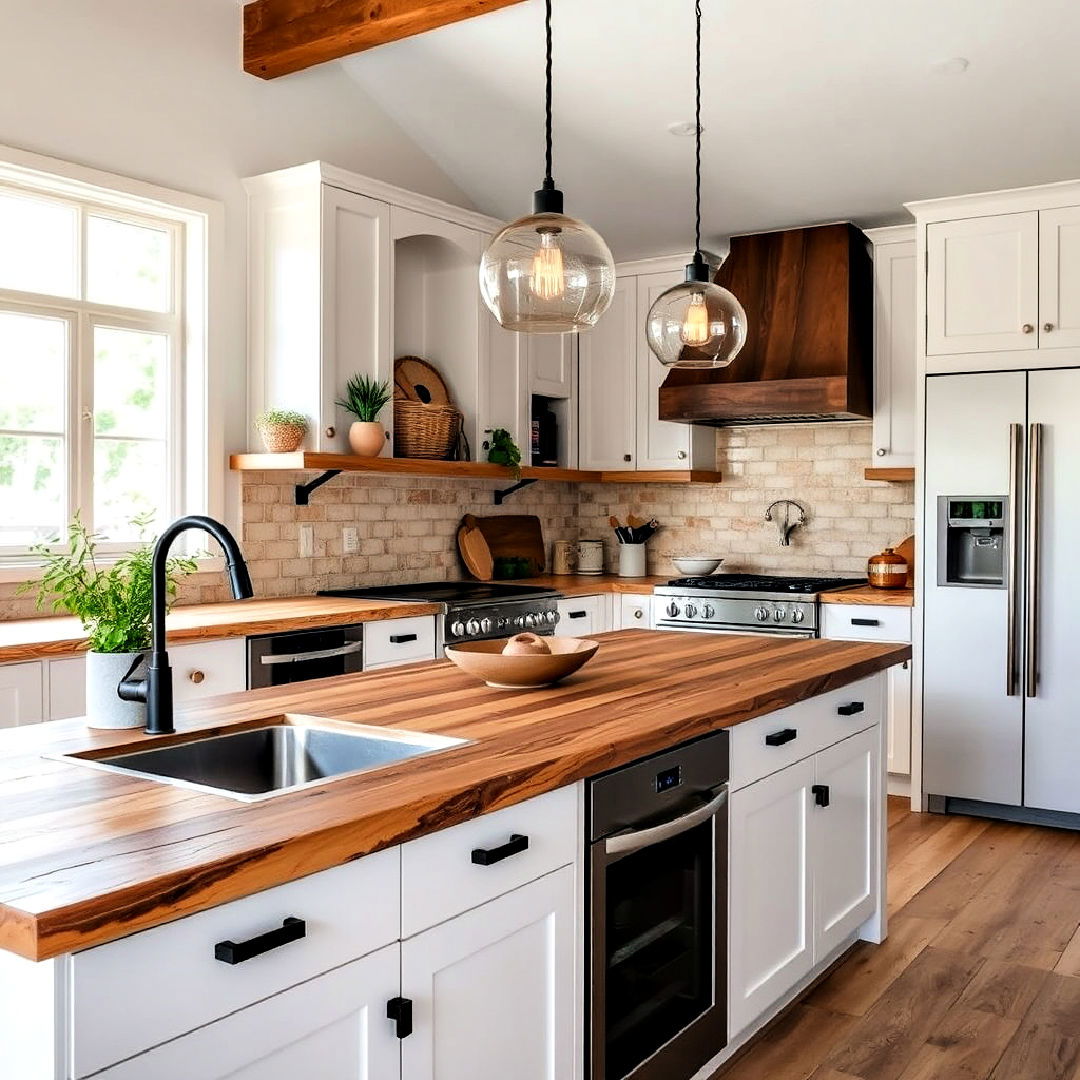
Reclaimed wood countertops bring both character and sustainability to an organic kitchen design. Using wood from old barns or repurposed buildings gives your kitchen a unique look, with each piece telling its own story. The natural grain and weathered textures add warmth, while the eco-friendly approach aligns with the principles of organic living, reducing waste and promoting environmental responsibility.
2. Earth-Toned Color Palette
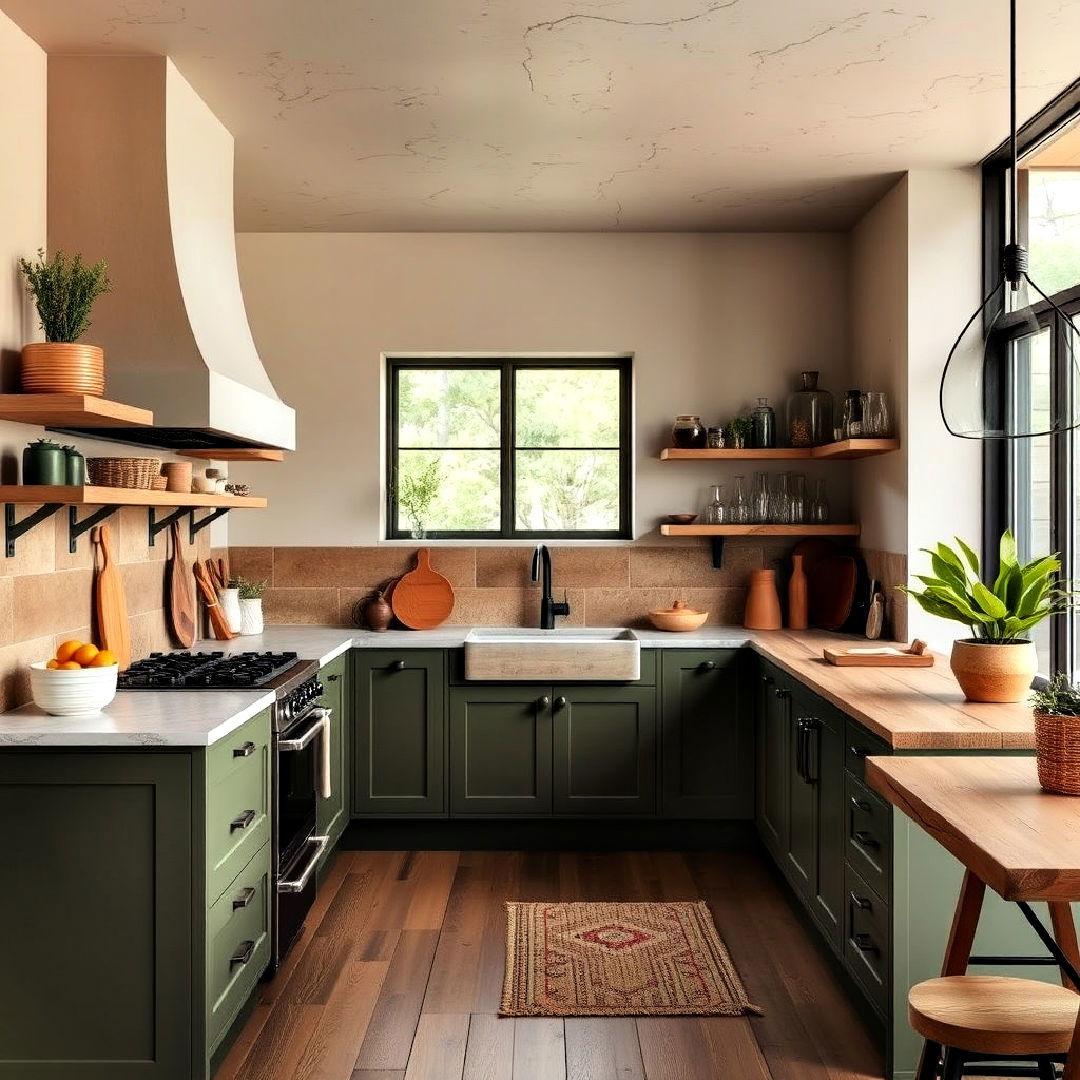
An earth-toned color palette instantly evokes a connection to nature. Soft hues like moss green, warm browns, terracotta, and muted beige create a calming, grounded atmosphere. These natural shades work well together and offer versatility in combining with organic materials like wood, stone, and metal, fostering a cohesive, nature-inspired space.
3. Clay or Ceramic Tiles
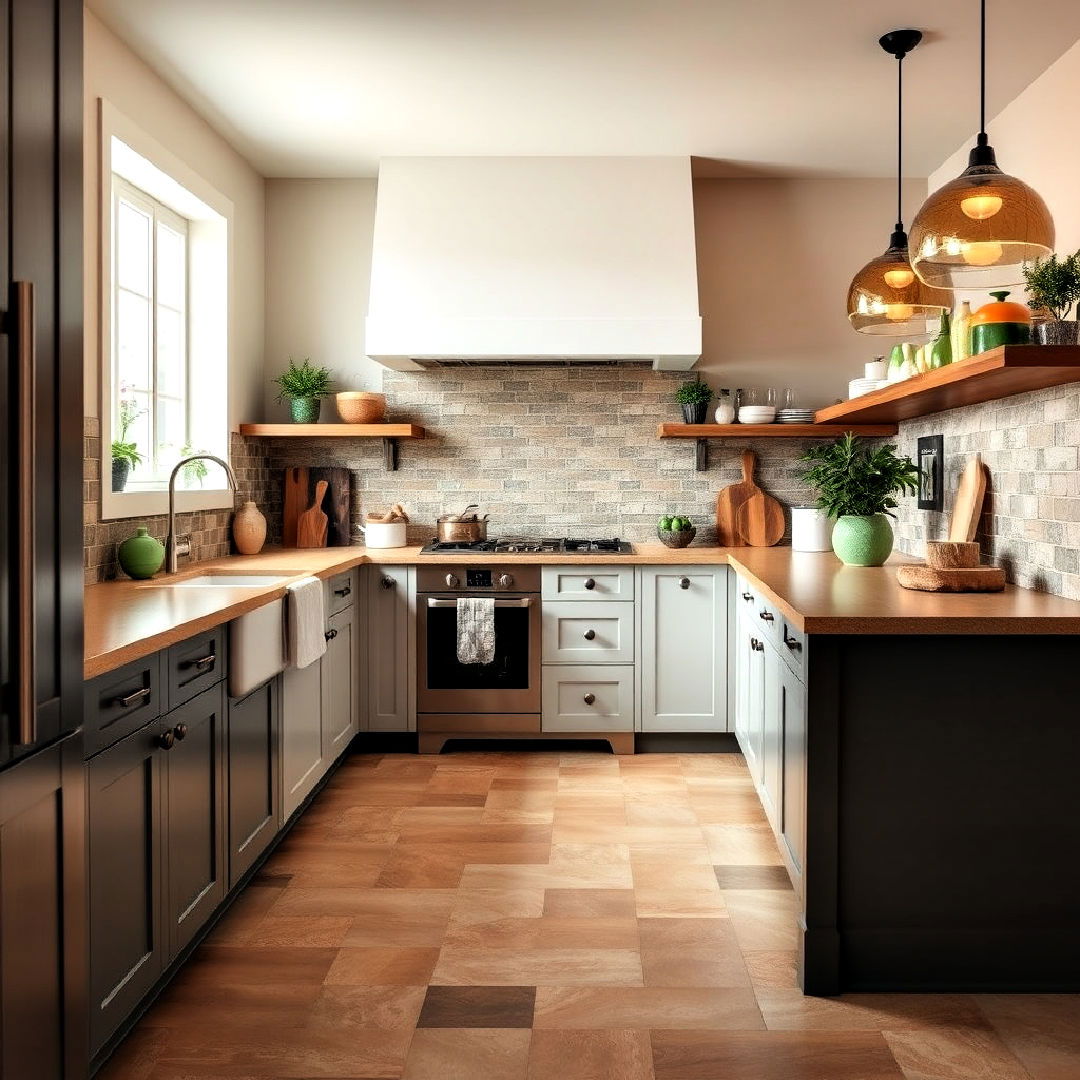
Elevate your space with a sleek organic modern kitchen that blends natural elements and clean lines. Incorporating clay or ceramic tiles for your kitchen backsplash or flooring adds an earthy, artisanal touch. Handmade or natural-finish tiles come with variations in texture and color that emphasize their organic origins. These materials are durable, easy to clean, and offer a subtle elegance that ties together the natural elements in your kitchen, ensuring longevity with a touch of craftsmanship.
4. Indoor Herb Garden
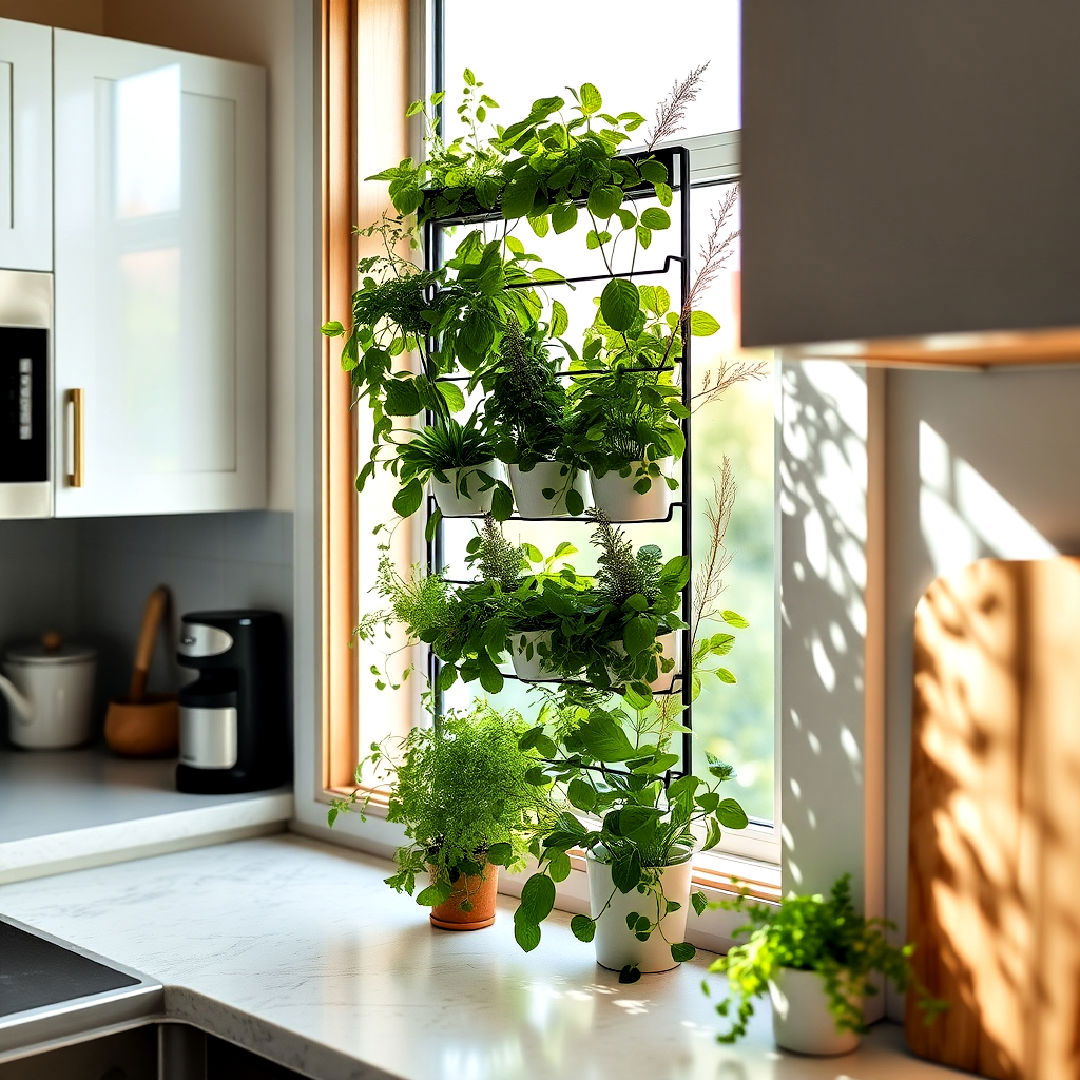
Growing an indoor herb garden near your kitchen window brings the outdoors inside, enhancing the organic feel of the space. Fresh herbs like basil, thyme, and rosemary not only add greenery but also provide immediate access to fresh, homegrown ingredients for your meals. Vertical planters or small potted herbs create a functional and beautiful element in the kitchen, promoting sustainability and freshness.
5. Natural Stone Sinks
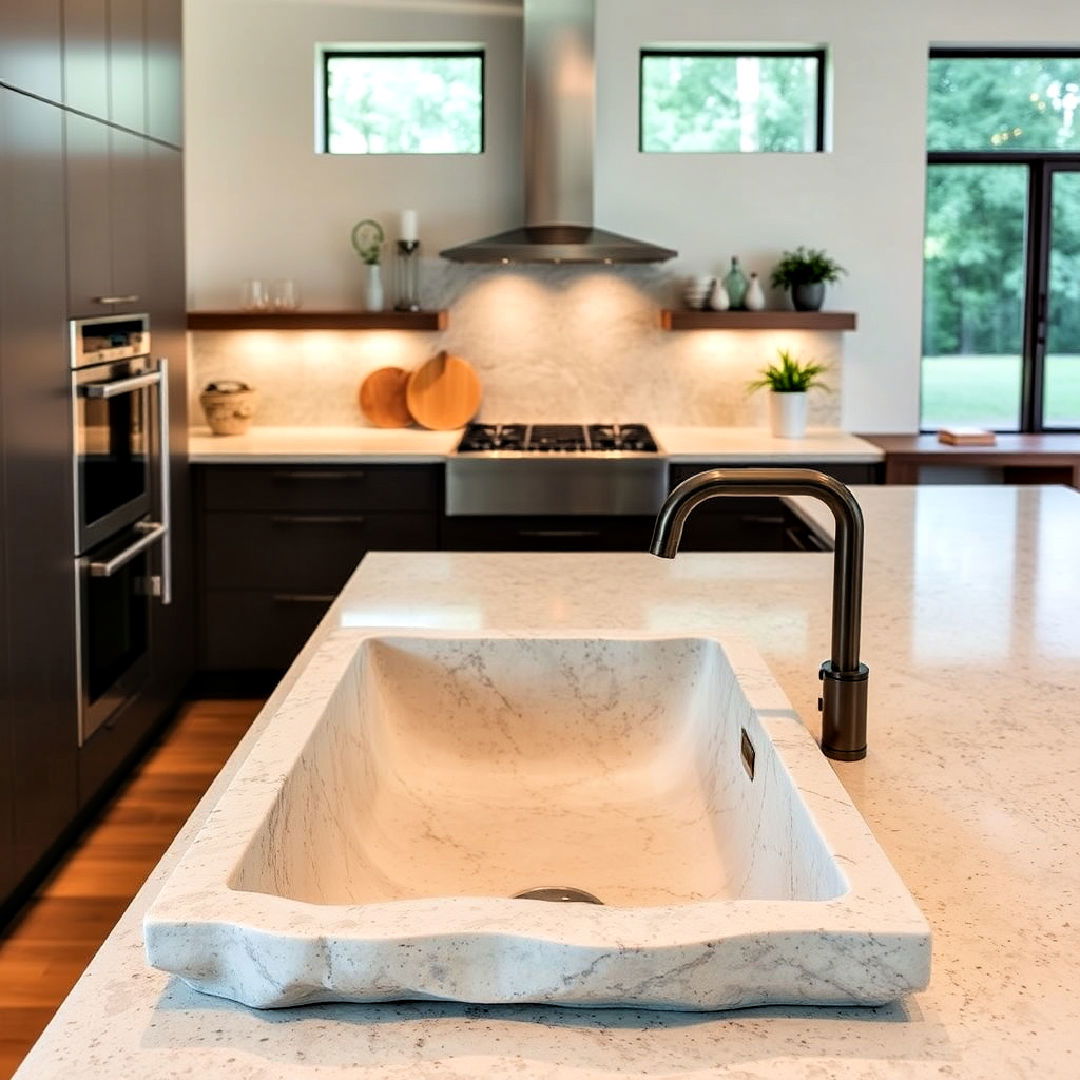
A natural stone sink can be the centerpiece of an organic kitchen. Materials like granite or soapstone are not only durable but also enhance the tactile connection to nature. The smooth, polished surface of a stone sink brings a sophisticated yet earthy feel, offering both beauty and function. These sinks, carved from solid stone, further emphasize the kitchen's organic and grounded aesthetic.
6. Bamboo Cabinetry
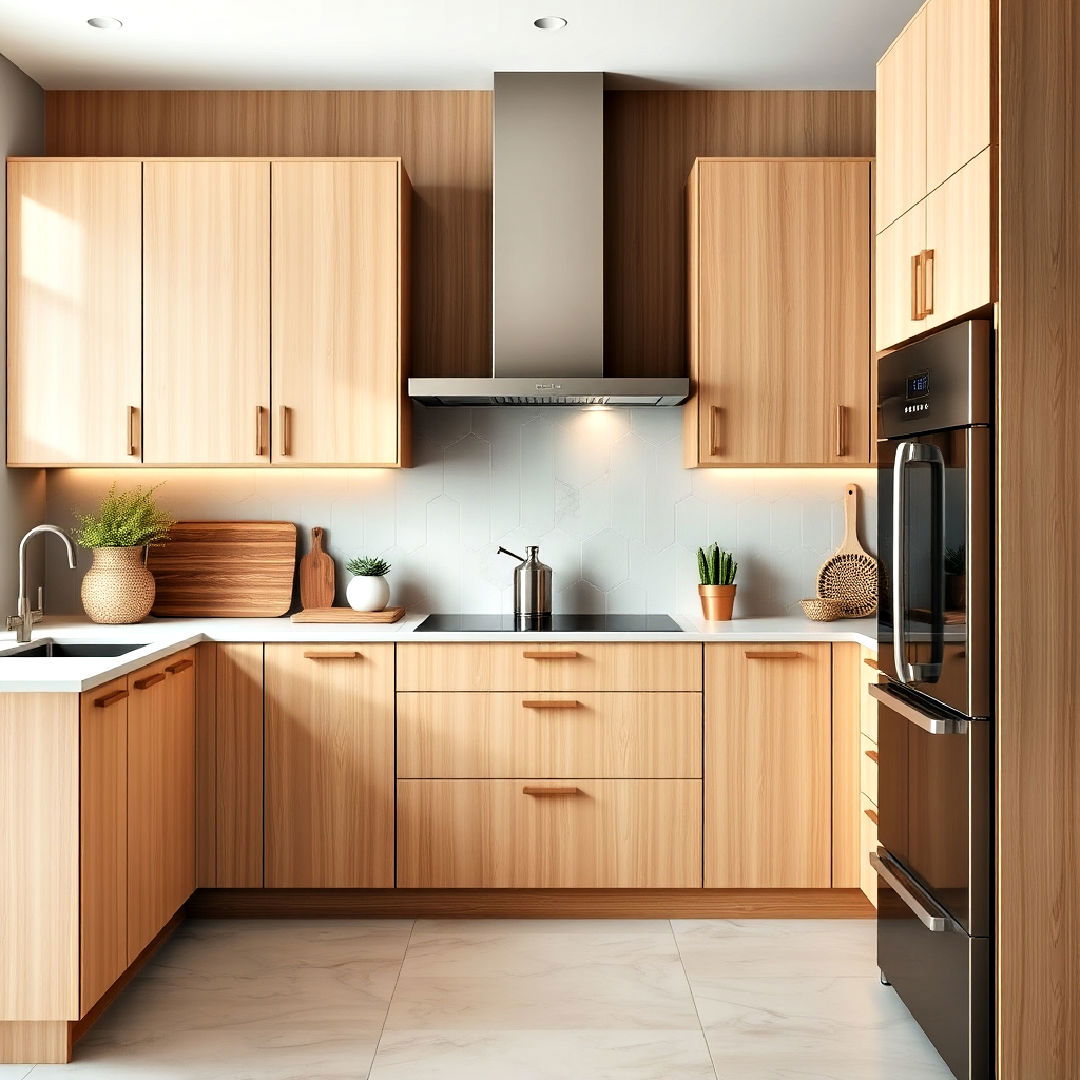
Bamboo cabinetry introduces an eco-friendly, sustainable material to your kitchen design. Known for its rapid renewability, bamboo is a durable option that brings a light, natural warmth to the space. Its subtle grain pattern and soft, neutral tone make it an excellent choice for creating a serene, organic kitchen that connects with nature while maintaining a sleek, modern aesthetic.
7. Open Shelving with Natural Wood
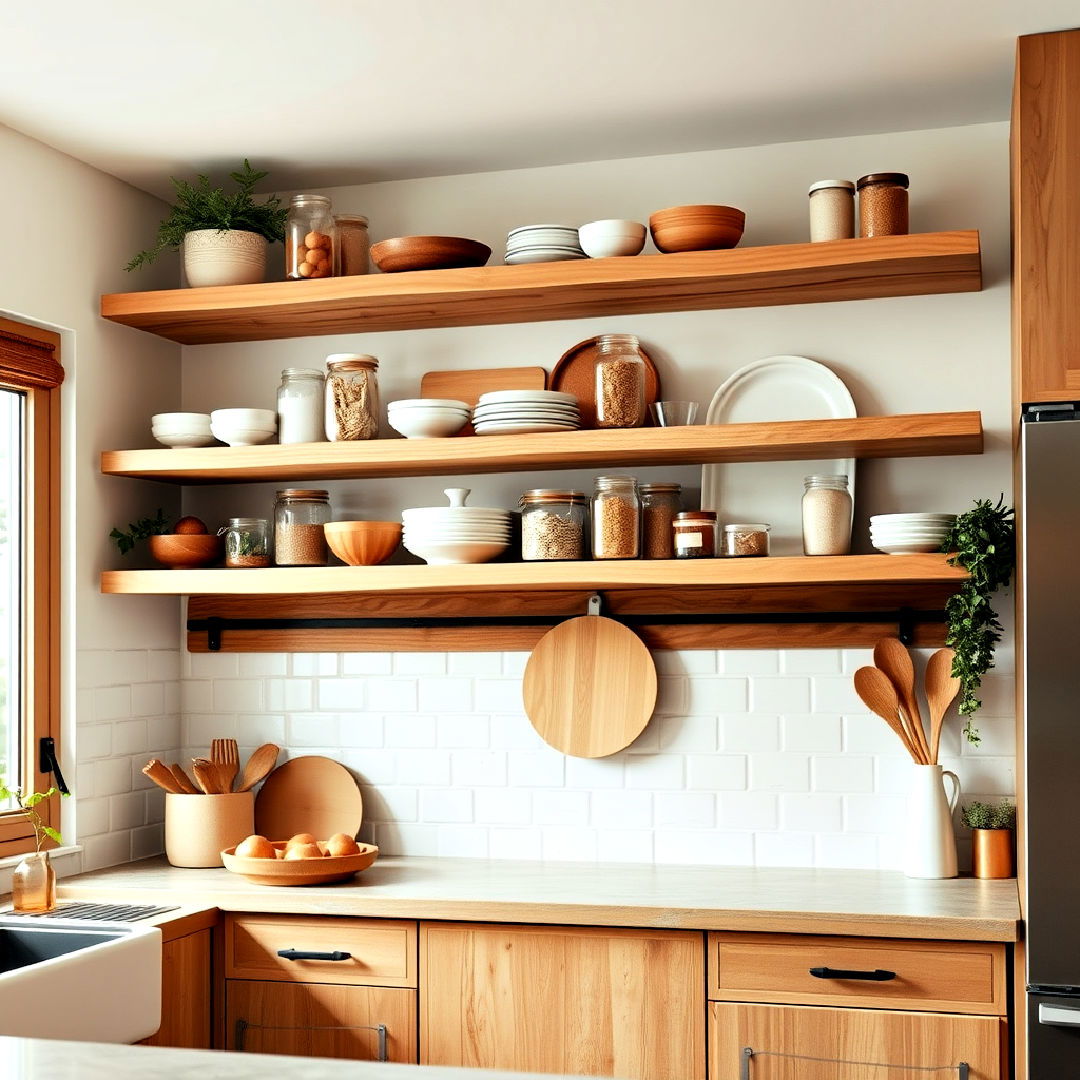
Open shelving made from natural wood adds both functionality and an organic touch to your kitchen. Displaying your everyday kitchen essentials on raw, unfinished wood shelves offers a chance to showcase beautiful dishes, jars of grains, or herbs, all while enhancing the natural, rustic feel. The open design also creates a more airy, spacious environment, aligning with the open, breathable atmosphere of organic spaces.
8. Recycled Glass Countertops
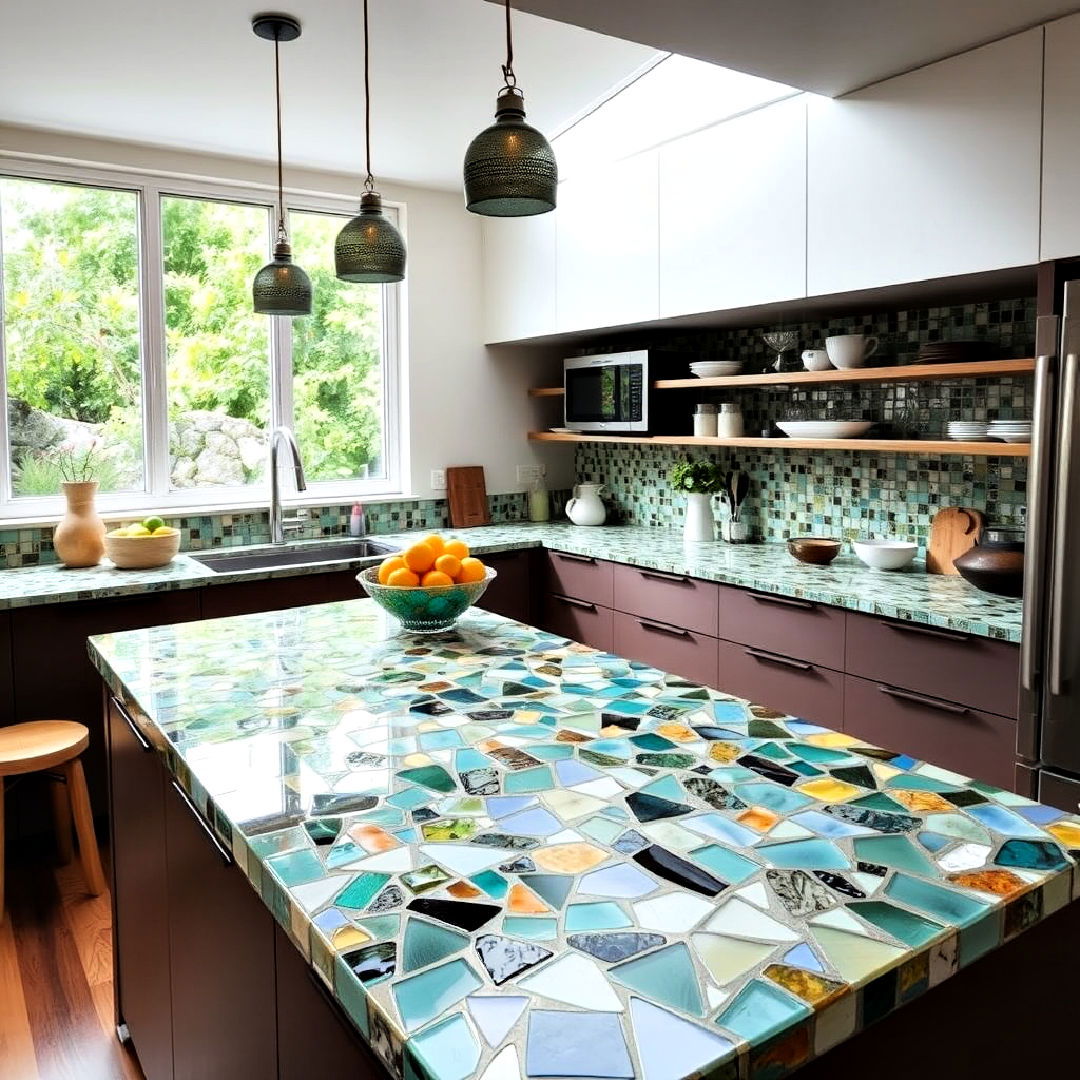
Discover the perfect balance of nature and style with a modern organic kitchen design. Recycled glass countertops are a stunning and sustainable addition to an organic kitchen. Made from post-consumer glass, these surfaces create a unique, mosaic-like appearance with vibrant colors and textures. Not only are they eco-friendly, but they are also highly durable and resistant to heat, making them both practical and visually striking, ideal for an environmentally conscious kitchen.
9. Organic Cotton or Linen Textiles
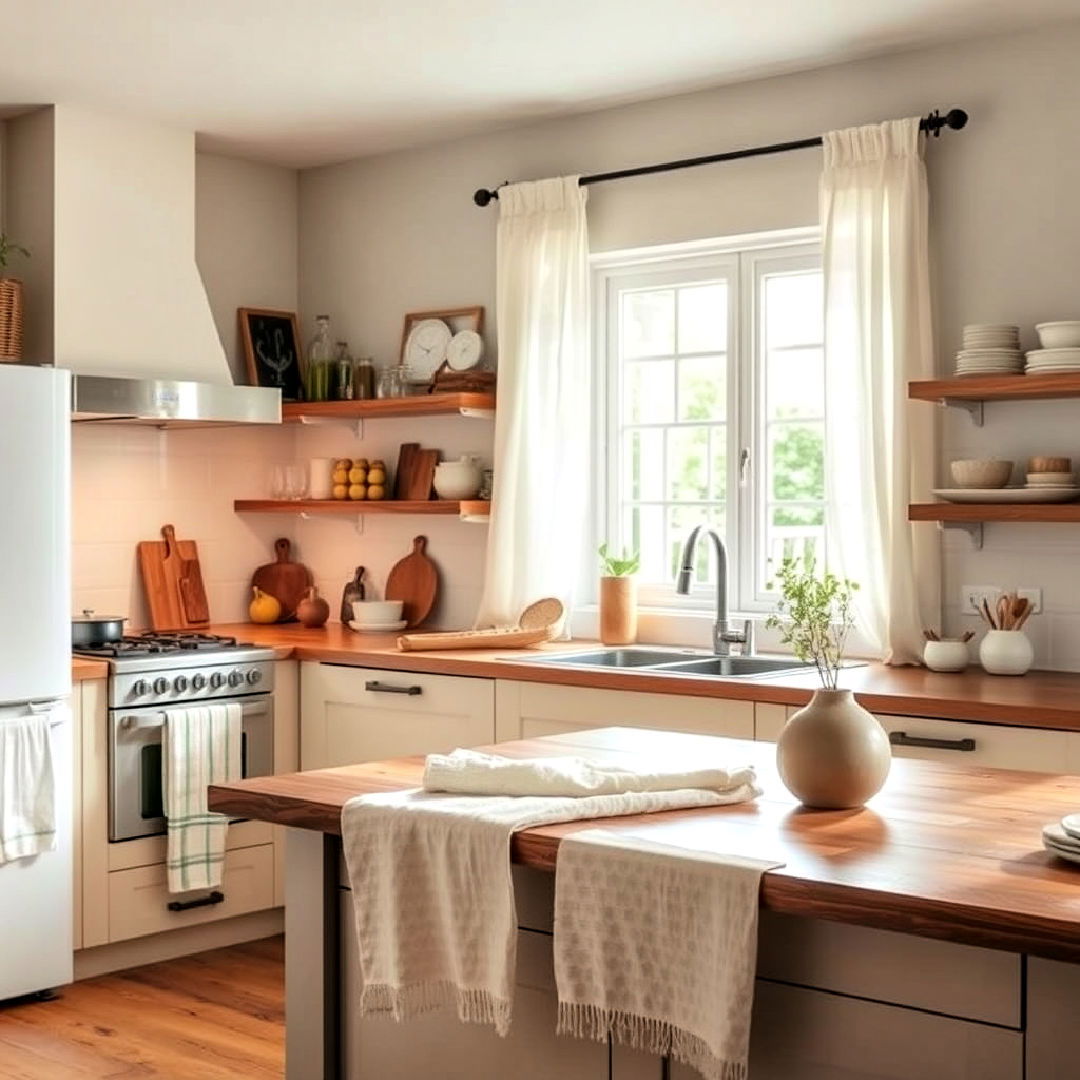
Introduce natural fabrics into your kitchen with organic cotton or linen textiles. These materials are perfect for dish towels, tablecloths, and curtains, offering a soft, breathable, and eco-friendly option. Choosing undyed or naturally dyed textiles reinforces the organic theme, adding a subtle, tactile element that complements the natural materials and earthy tones throughout the kitchen.
10. Large Windows for Natural Light
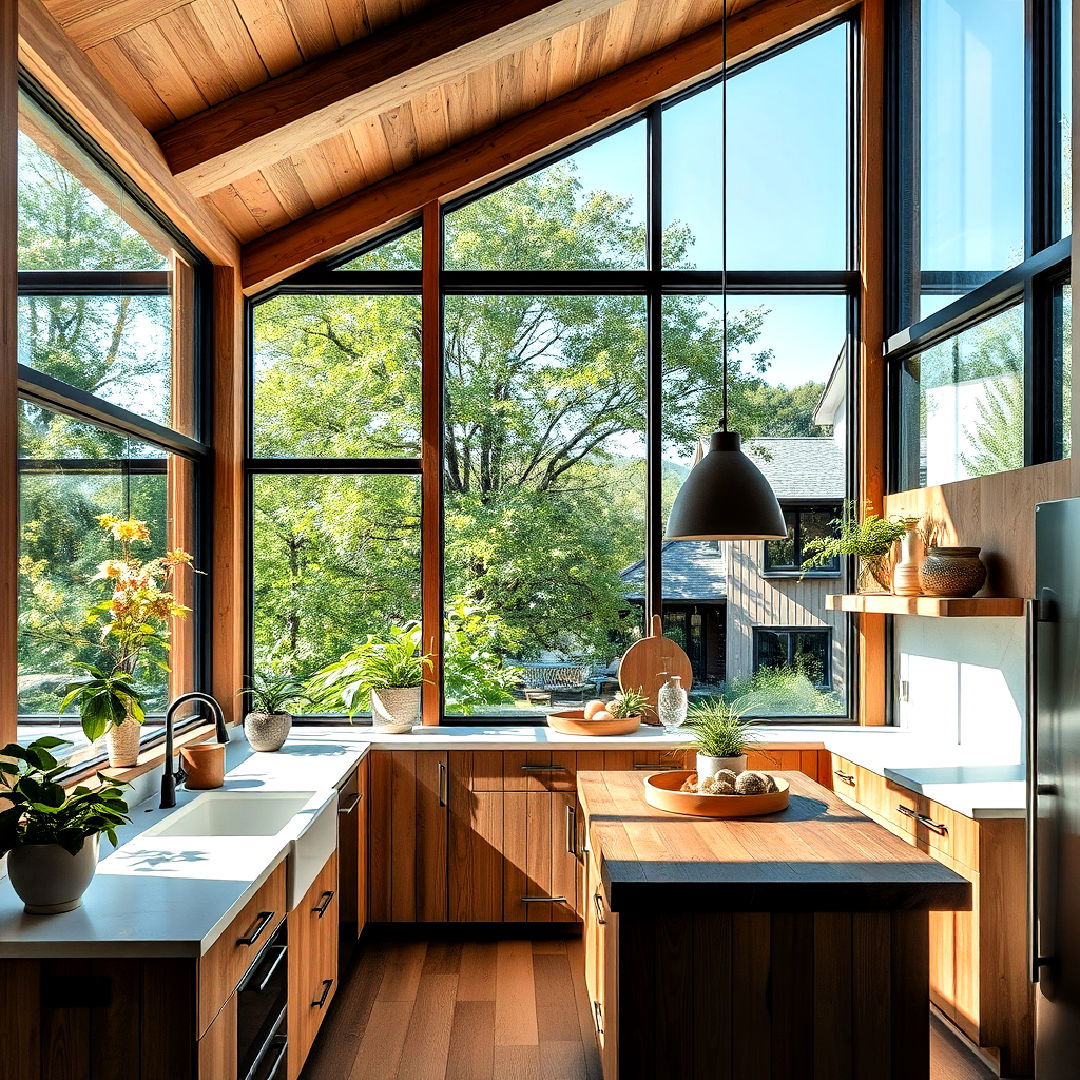
Maximizing natural light is essential in an organic kitchen design. Large, unobstructed windows not only reduce the need for artificial lighting but also connect your kitchen to the outdoors. The influx of sunlight highlights the natural textures of wood, stone, and plants, enhancing the airy, open feeling of the space while promoting an energy-efficient environment.
11. Living Green Wall
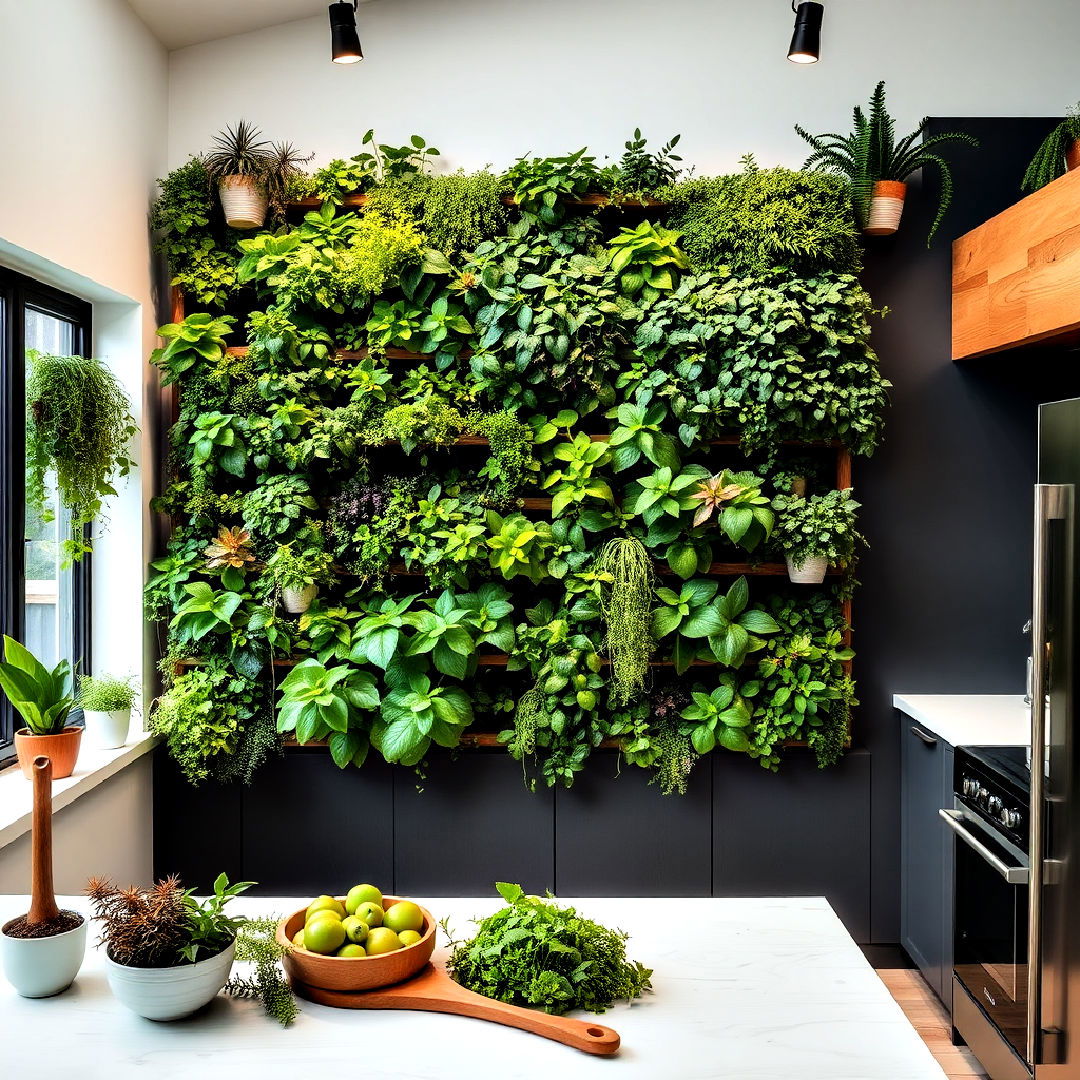
A living green wall adds a dramatic and functional element to your organic kitchen. This vertical garden not only brings lush greenery indoors but also purifies the air and promotes a sense of well-being. Growing herbs, edible plants, or succulents on the wall transforms the kitchen into a natural sanctuary, blending beauty with sustainability and fresh, homegrown ingredients at your fingertips.
12. Salvaged Metal Accents
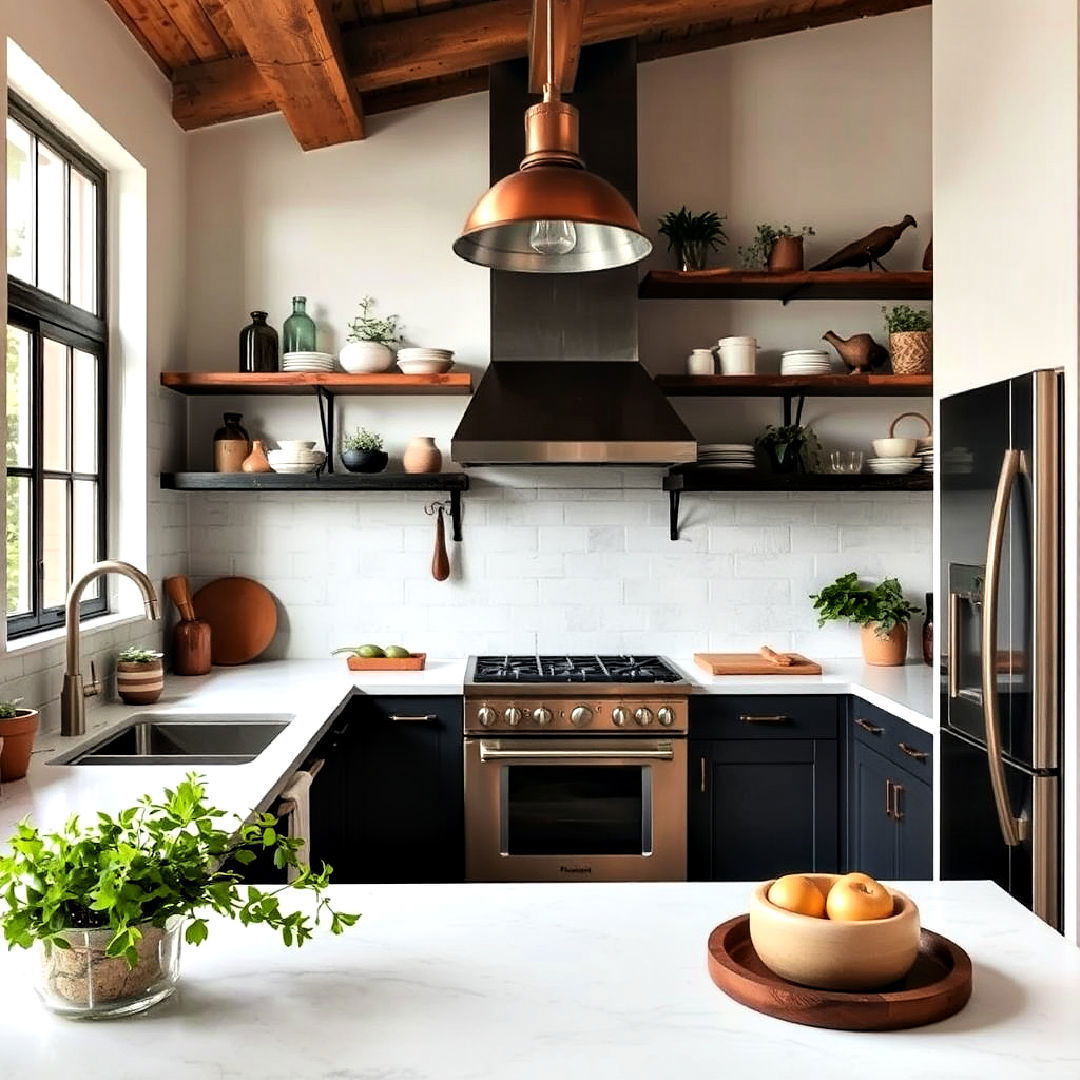
Incorporating salvaged metal accents, such as vintage copper or brass fixtures, adds an industrial yet organic touch to your kitchen. These repurposed materials offer a rustic, lived-in feel while also being environmentally responsible. Whether it’s cabinet handles, light fixtures, or shelving brackets, metal accents bring warmth and character without sacrificing the sustainable focus of the design.
13. Cork Flooring
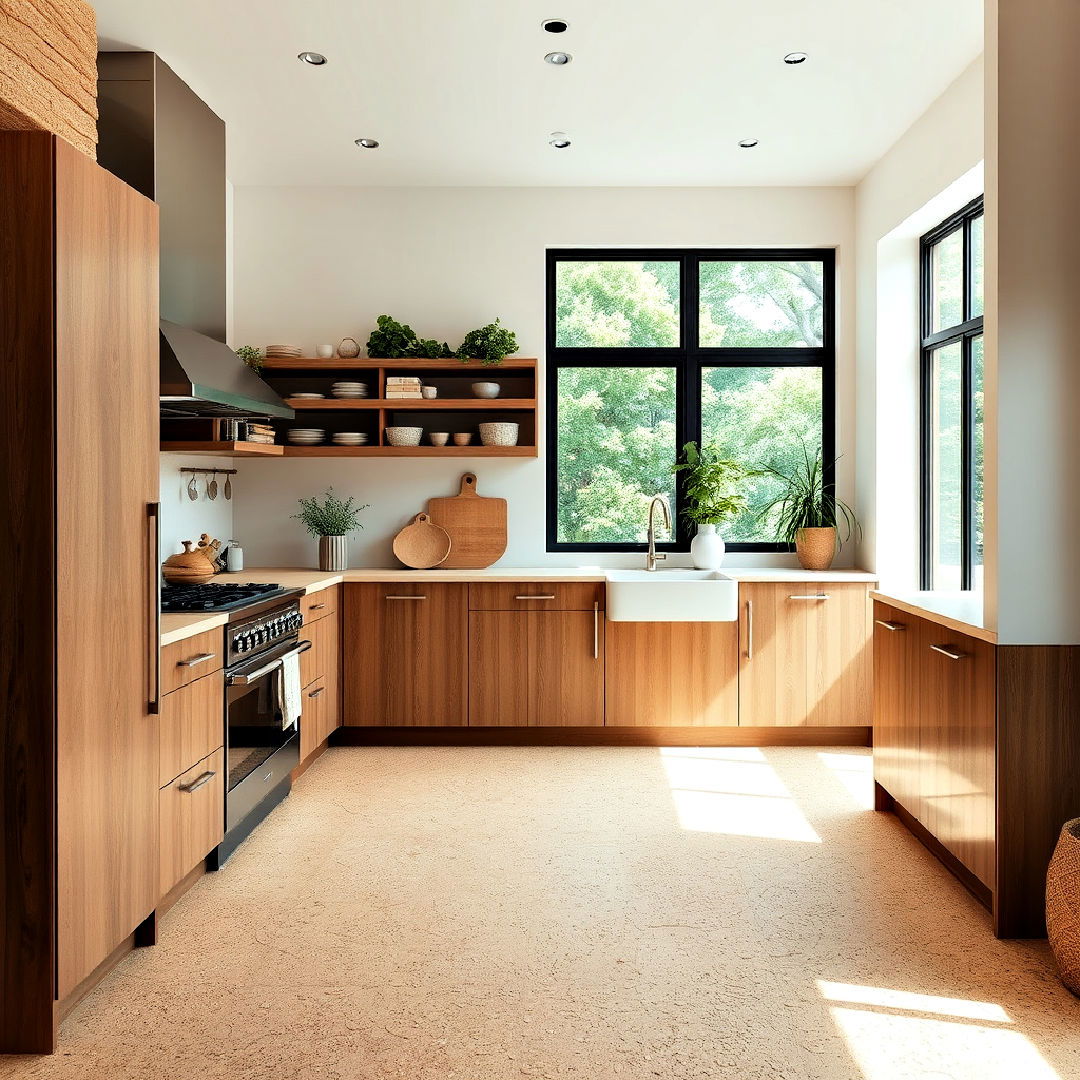
Cork flooring is a renewable and eco-friendly option for an organic kitchen. Soft underfoot and naturally insulating, cork provides comfort while maintaining a natural, earthy aesthetic. Its water-resistant properties make it a practical choice for the kitchen, and the natural textures and patterns of cork lend a unique look that fits seamlessly into an organic design.
14. Wool or Jute Rugs
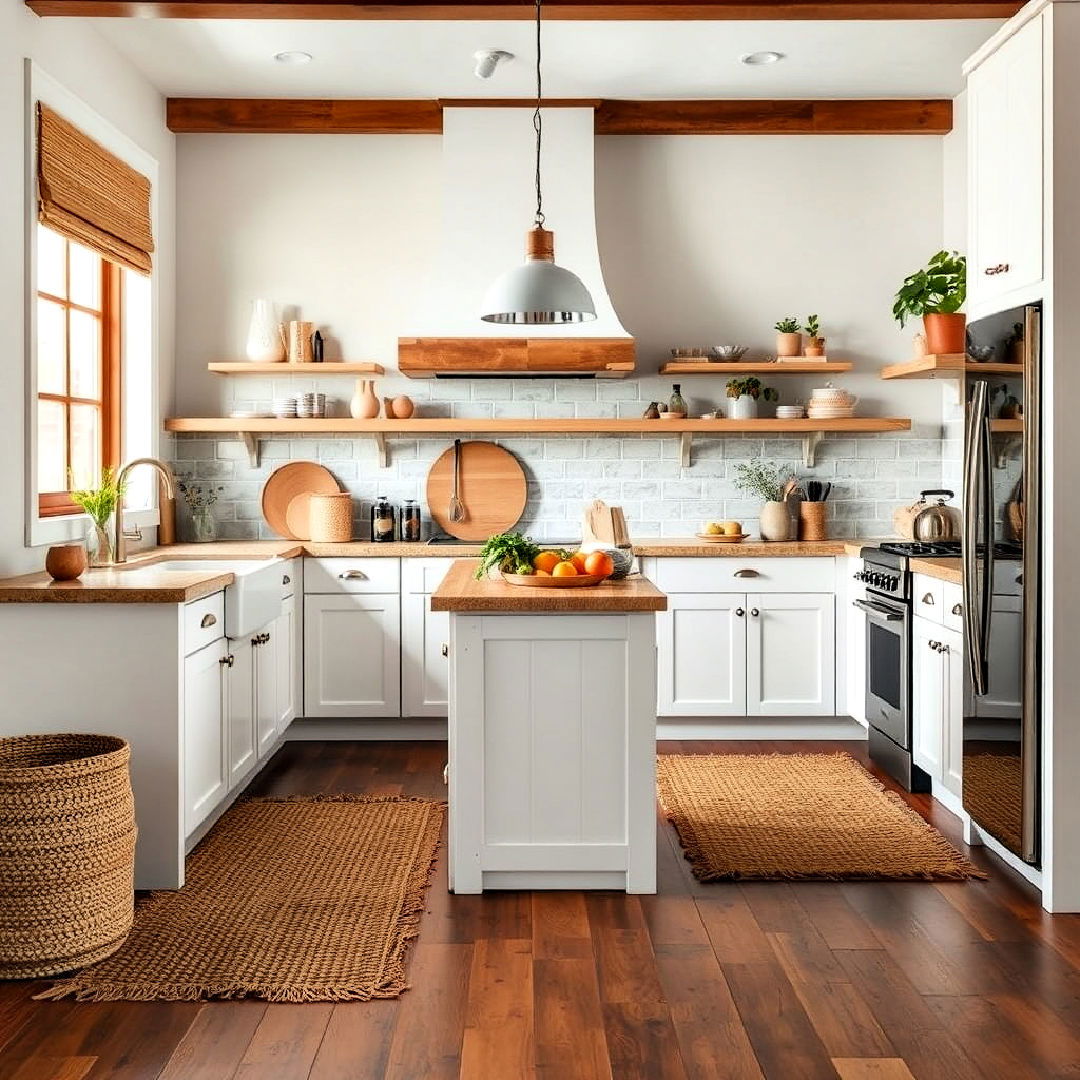
Add warmth and texture to your kitchen with wool or jute rugs. These natural, sustainable fibers are biodegradable and durable, making them ideal for high-traffic areas like the kitchen. Wool is soft and insulating, while jute provides a more rustic, earthy feel. Both materials enhance the organic theme while offering practical benefits like comfort and noise reduction.
15. Energy-Efficient Appliances
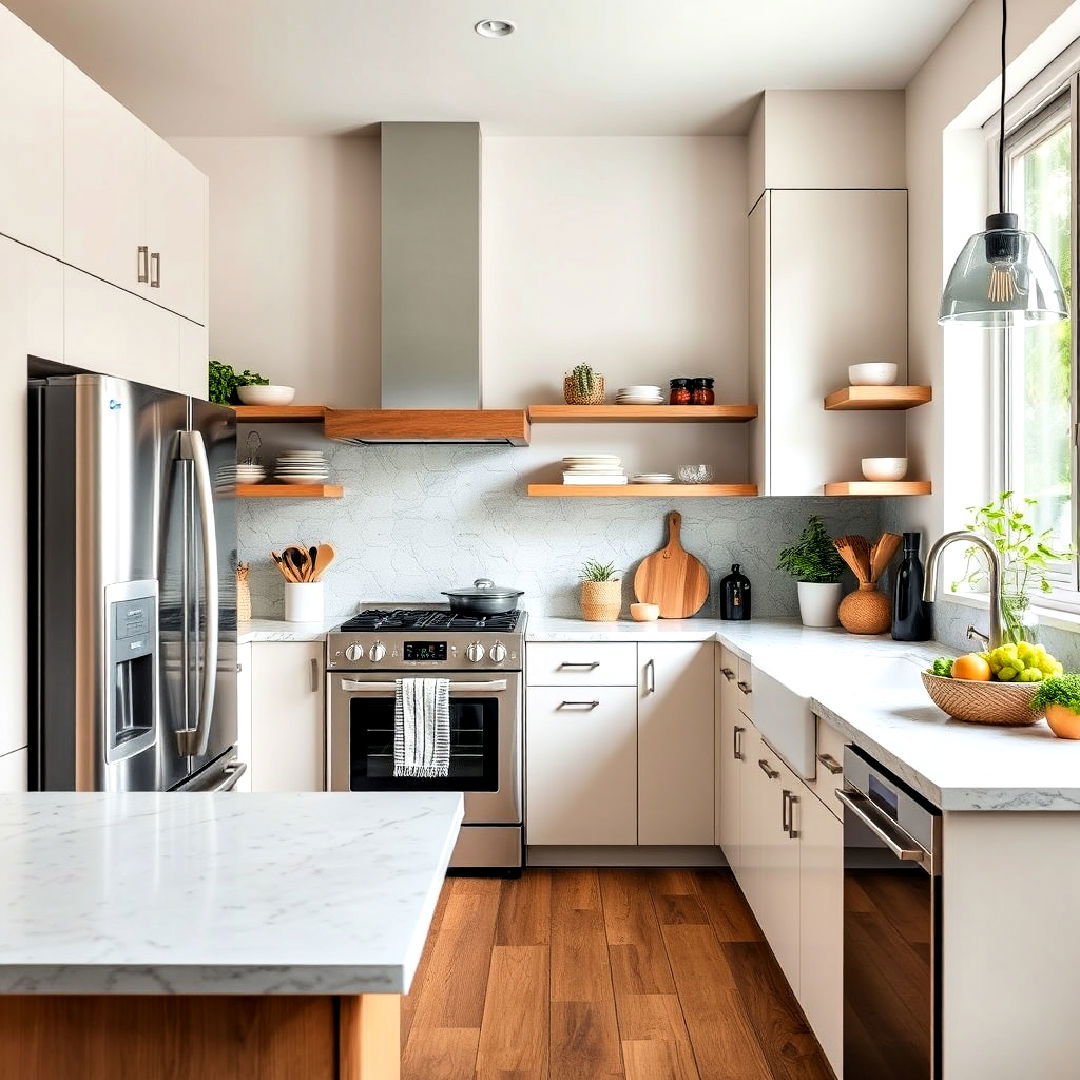
Create a welcoming atmosphere with a warm organic modern kitchen featuring earthy tones and textures. Opt for energy-efficient appliances that align with the eco-conscious principles of an organic kitchen. Appliances with ENERGY STAR ratings consume less energy and water, reducing your kitchen’s carbon footprint. Sleek designs and modern technology can seamlessly integrate with natural materials and textures, ensuring that functionality and sustainability coexist in your kitchen.
16. Terracotta Pots and Planters
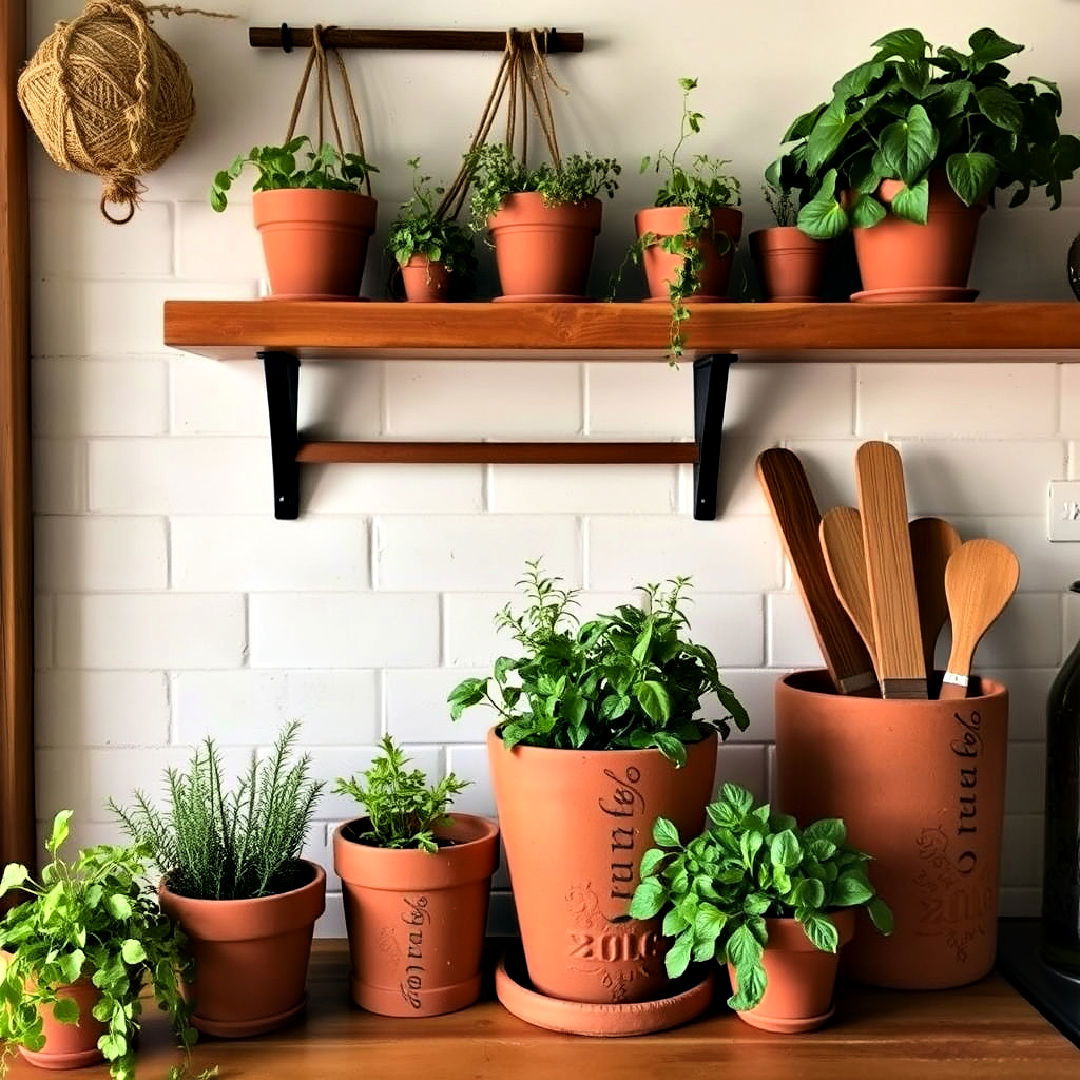
Terracotta pots and planters add a timeless, earthy charm to your kitchen. Perfect for growing herbs, small plants, or even storing kitchen utensils, terracotta complements a range of organic design elements like wood, stone, and metal. The warm tones of the clay bring a rustic, Mediterranean feel that enhances the overall natural aesthetic of the space.
17. Natural Clay or Earthenware Dishware
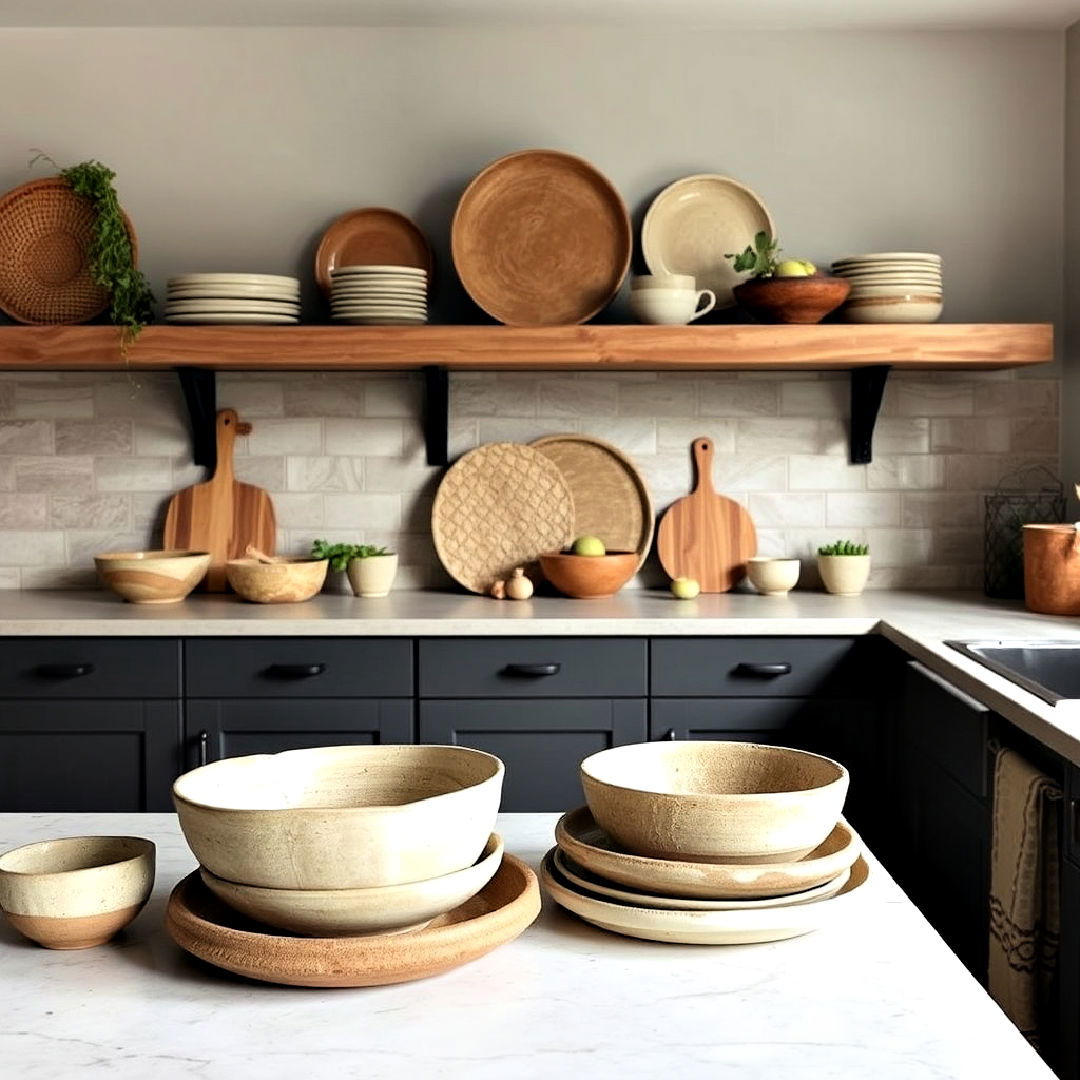
Using natural clay or earthenware dishware connects your kitchen experience with organic, handmade materials. These dishes offer a textured, earthy look that elevates the aesthetic of your space while embracing traditional, artisanal craftsmanship. Their raw, imperfect surfaces add character and depth, making each meal feel more grounded and connected to nature.
18. Composting Station
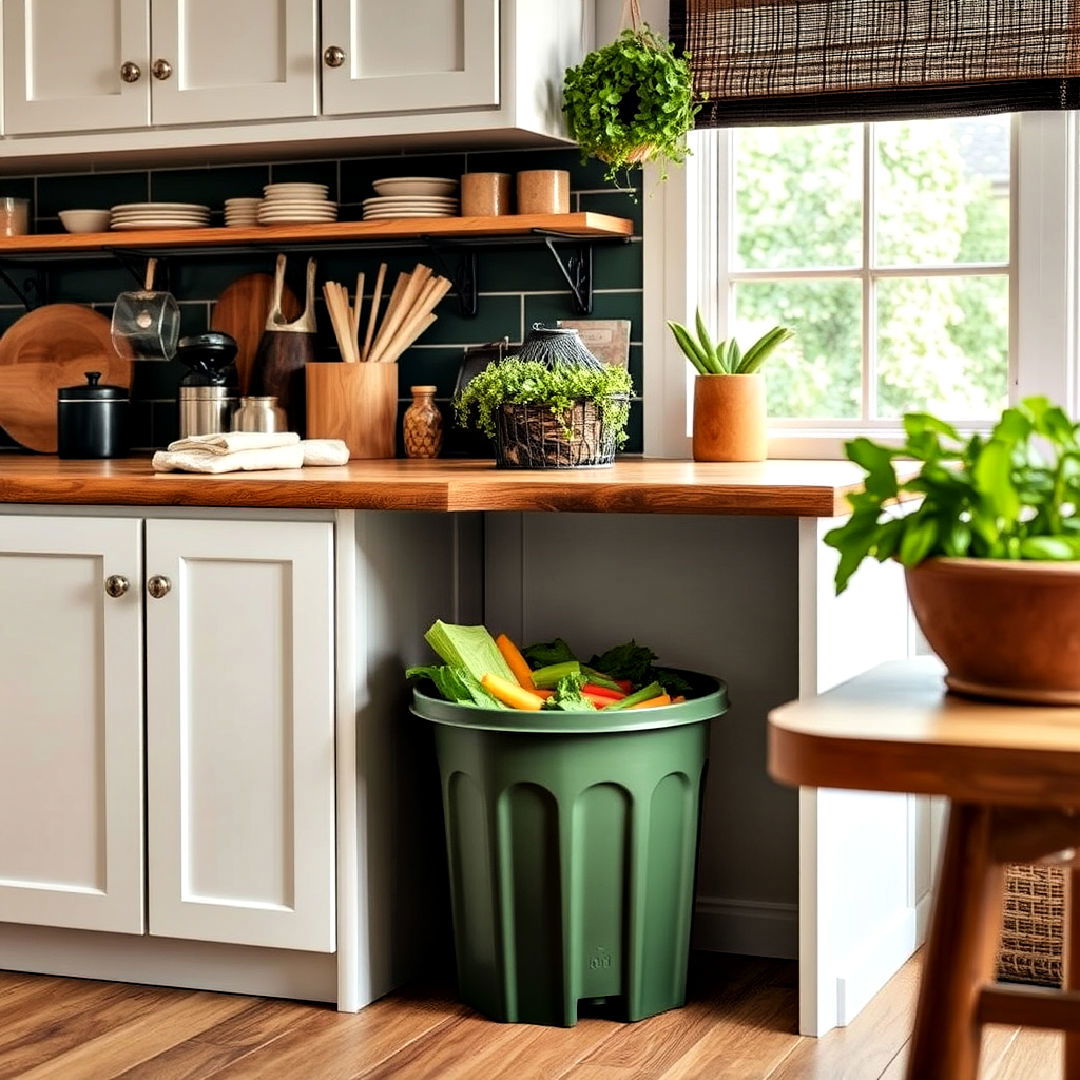
Create a composting station in your kitchen to support a sustainable, waste-free lifestyle. A small, well-designed compost bin can be placed under the counter or in a corner, making it easy to collect food scraps for composting. This promotes environmental responsibility and keeps your kitchen aligned with organic living principles by reducing waste and enriching the soil in your garden.
19. Beeswax Wraps
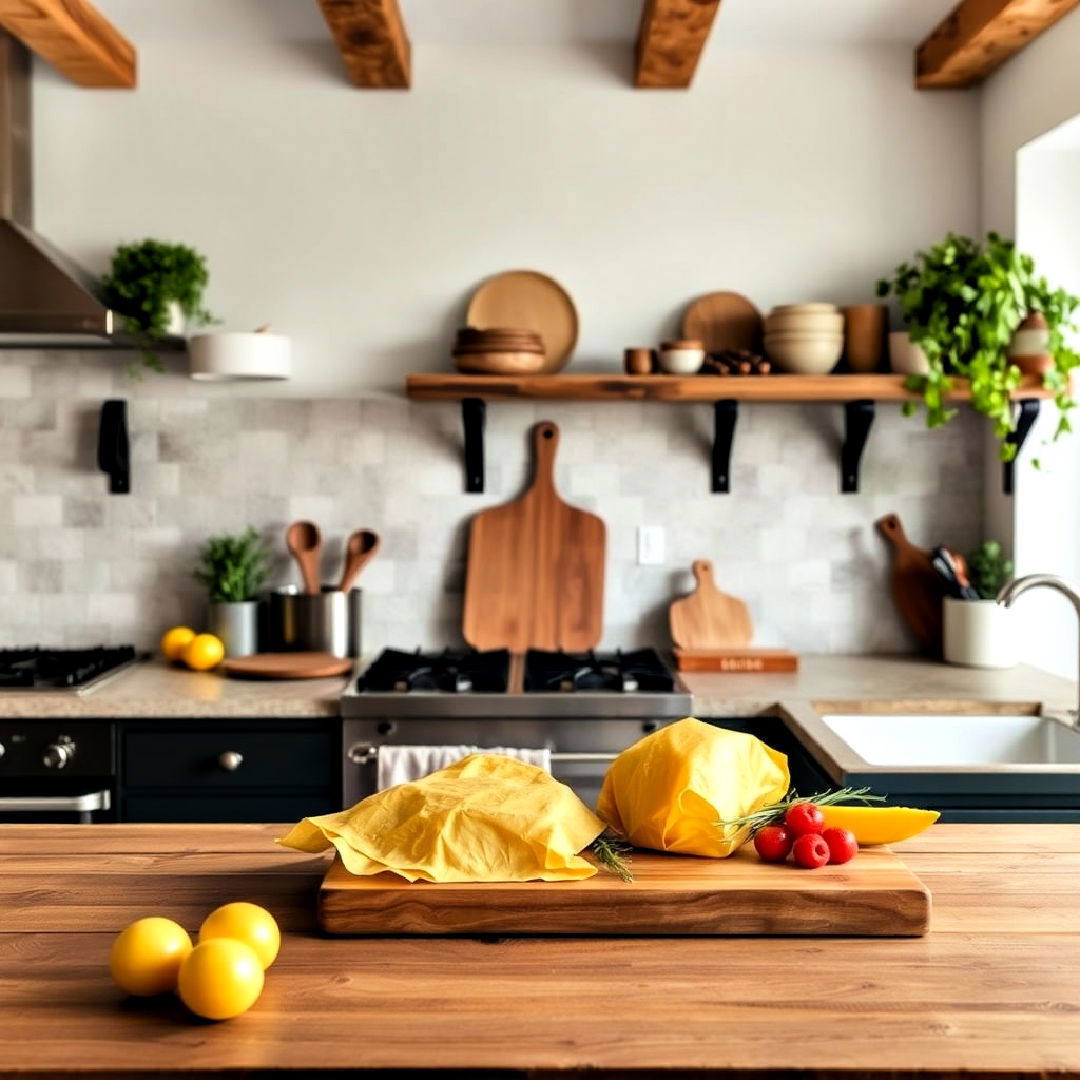
Embrace sustainability and elegance with an organic kitchen design that inspires. Replace plastic wraps with beeswax wraps for a more sustainable and organic approach to food storage. Made from cotton infused with beeswax, these wraps are reusable, biodegradable, and an excellent way to reduce single-use plastics in the kitchen. They add a natural, artisanal touch while keeping food fresh and your kitchen eco-friendly.
20. Exposed Brick Walls
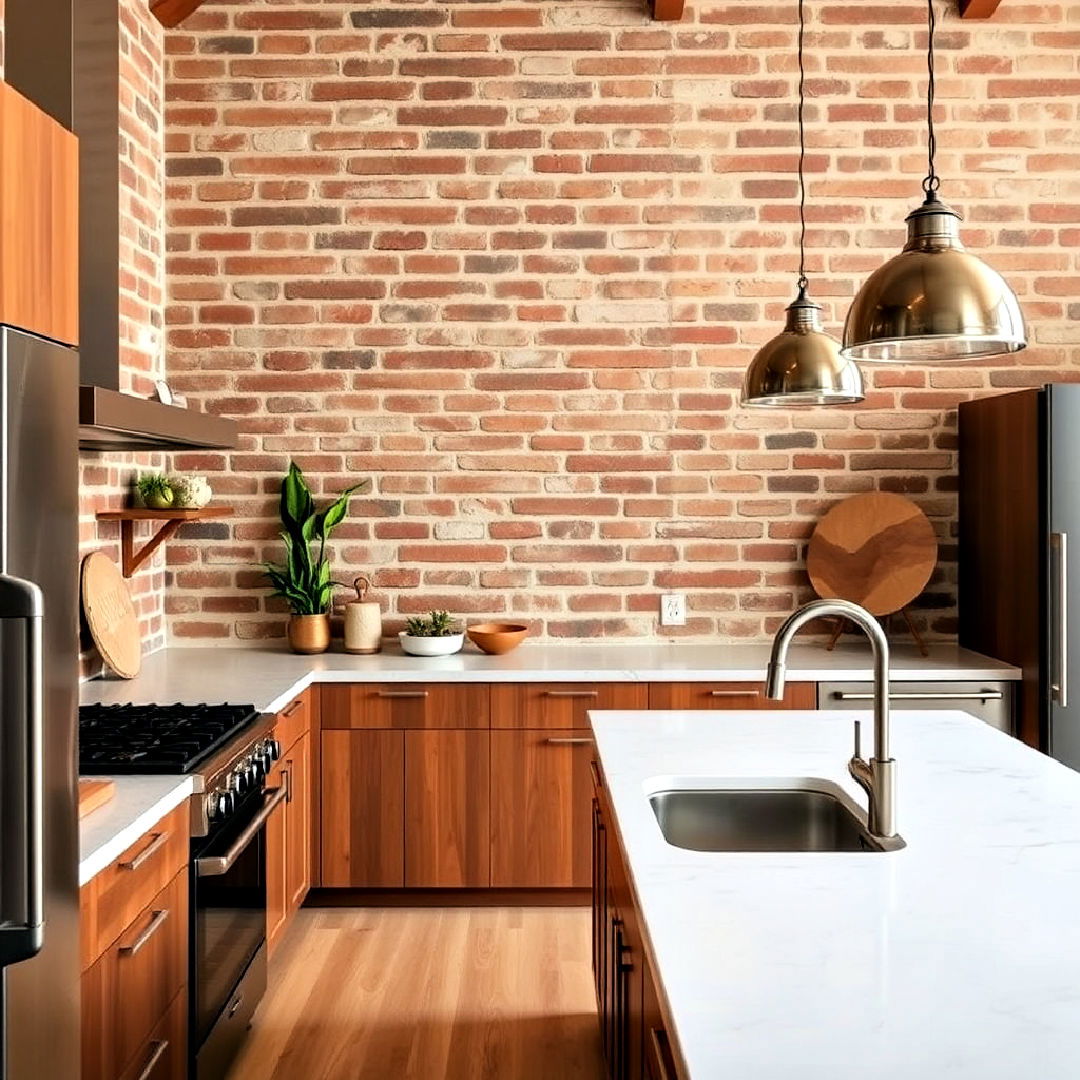
Exposed brick walls provide a raw, rustic texture that pairs beautifully with organic kitchen designs. The natural, earthy tones of brick create a striking backdrop against sleek countertops, wood cabinetry, and metal fixtures. This design element adds warmth and history to the space, making your kitchen feel grounded in both nature and tradition.
Conclusion:
Transforming your kitchen into an organic haven is about more than aesthetics—it’s a lifestyle choice that celebrates sustainability, functionality, and natural beauty. From the rustic charm of reclaimed wood countertops to the lush vibrancy of living green walls, every design idea here invites a deeper connection to nature. By incorporating eco-friendly materials like bamboo cabinetry, energy-efficient appliances, and natural textiles, you’re not only creating a beautiful space but also a healthier environment for your family. Let these ideas inspire your journey to a kitchen that’s as kind to the planet as it is inviting to all who gather there.
Key Points:
- Sustainability at the Core: Prioritize eco-friendly materials like reclaimed wood, recycled glass, bamboo, and natural textiles to design a kitchen that supports the environment.
- Natural Aesthetics: Embrace earth tones, organic patterns, and textures to create a warm and inviting ambiance.
- Functional Greenery: Incorporate living elements like herb gardens, green walls, and terracotta planters to bring life and freshness to your kitchen.
- Eco-Conscious Utility: Use energy-efficient appliances, composting stations, and sustainable storage solutions like beeswax wraps to promote practical and mindful living.
- Timeless Charm: Combine natural and repurposed materials, such as stone sinks and salvaged metals, for a design that blends modern functionality with rustic elegance.
What to Do Next:
- Evaluate Your Space: Assess your kitchen's layout and identify areas where sustainable and organic elements can be introduced or replaced.
- Plan Material Upgrades: Source eco-friendly materials like reclaimed wood, recycled glass, or bamboo for countertops, cabinetry, or flooring.
- Add Green Touches: Set up an indoor herb garden, incorporate planters, or explore the possibility of a living green wall to enhance air quality and aesthetics.
- Enhance Lighting: Maximize natural light with larger windows or reflective elements while ensuring energy-efficient fixtures for evenings.
- Invest in Efficiency: Upgrade to energy-efficient appliances and integrate sustainable kitchen practices like composting and reusable materials.
- Design with Texture: Incorporate rugs, textiles, and dishware made from organic, natural fibers for a cohesive and eco-conscious look.
By following these steps, you can transform your kitchen into an organic, sustainable, and visually stunning space.

